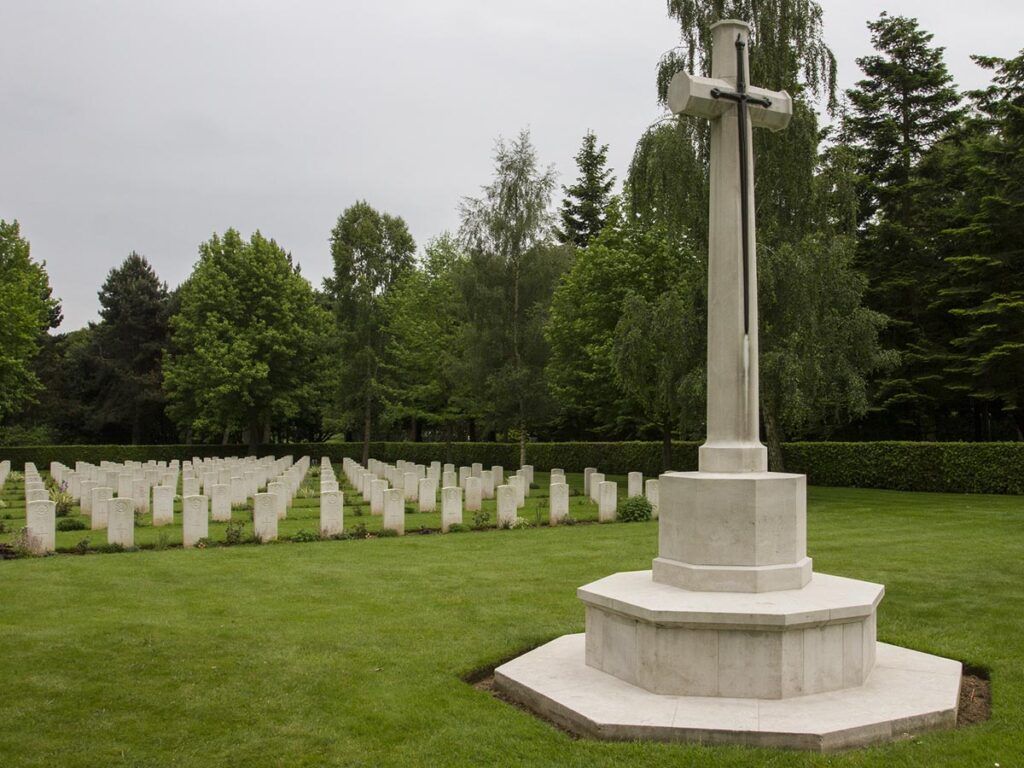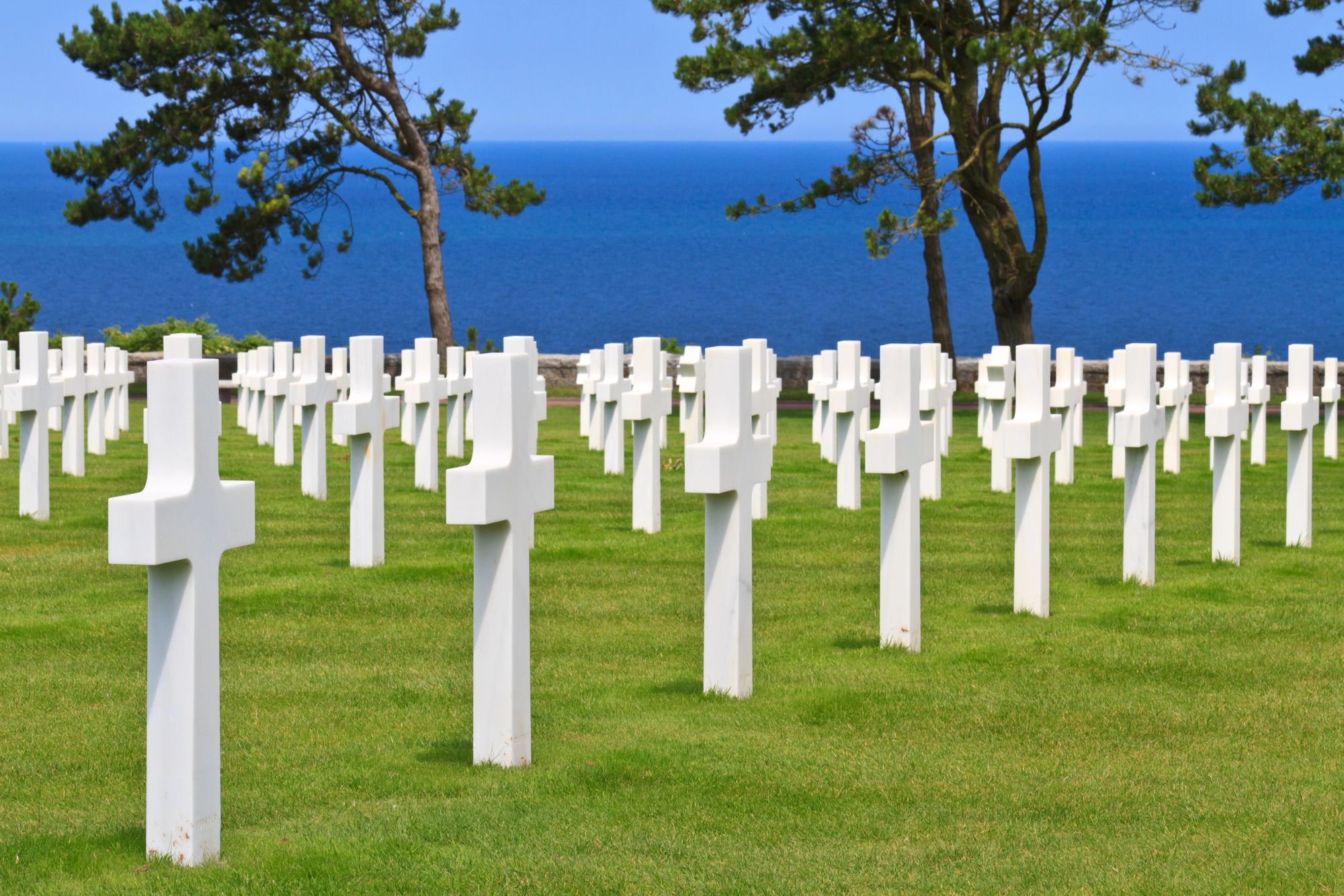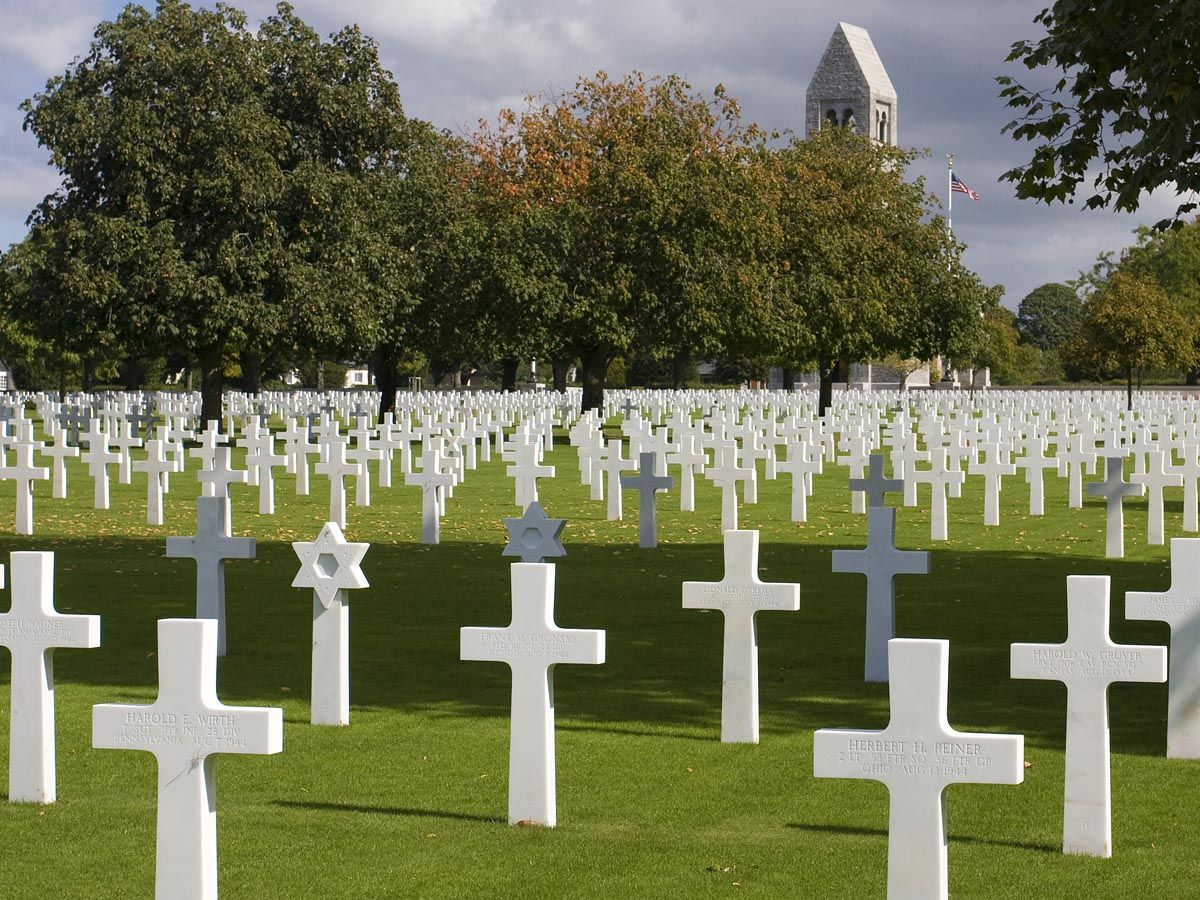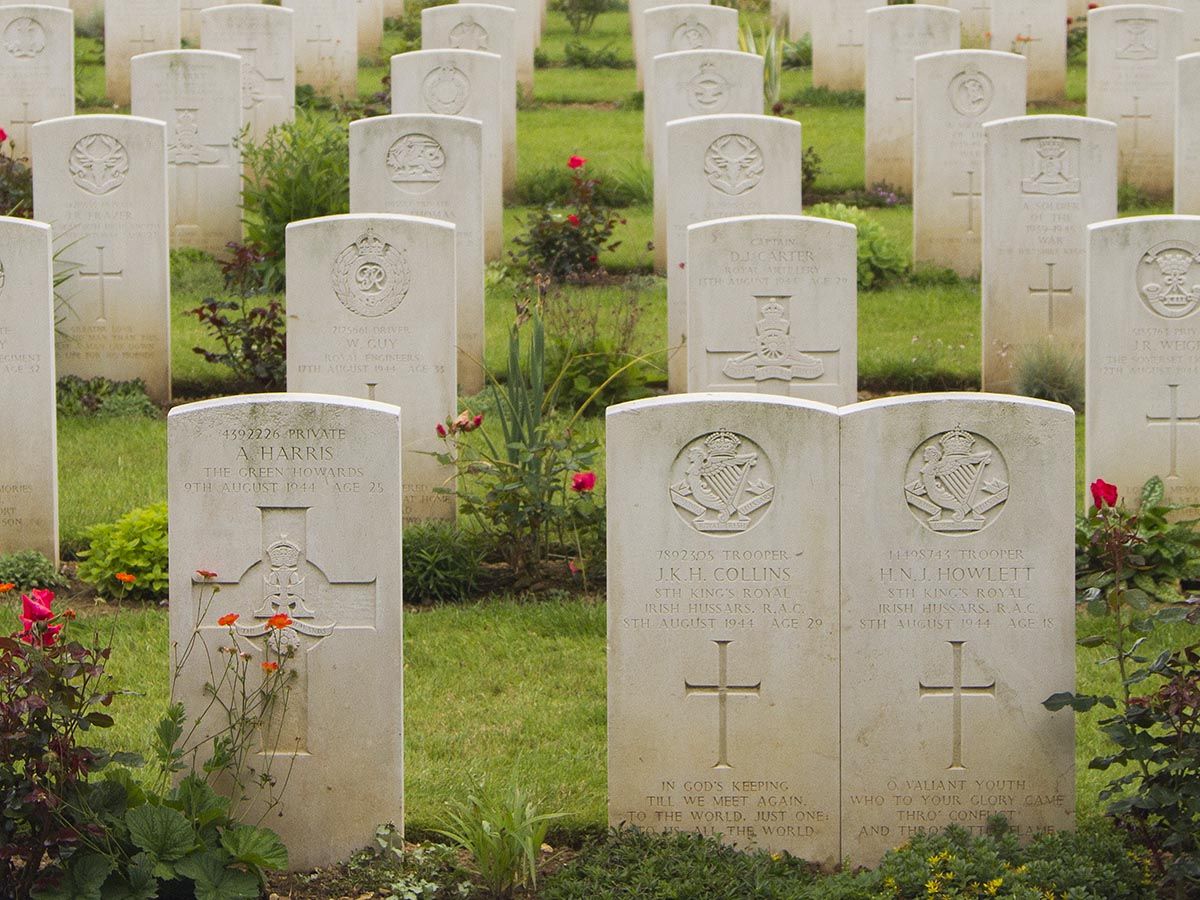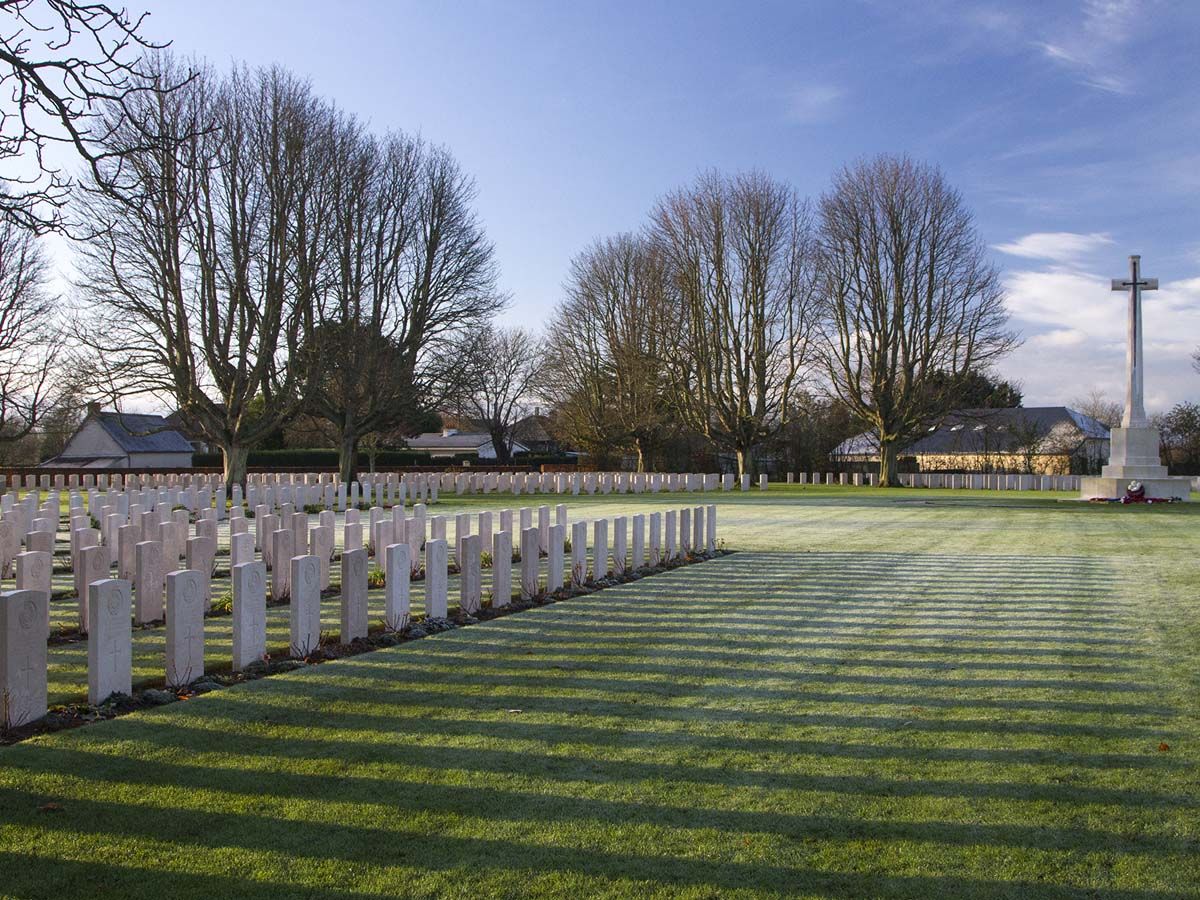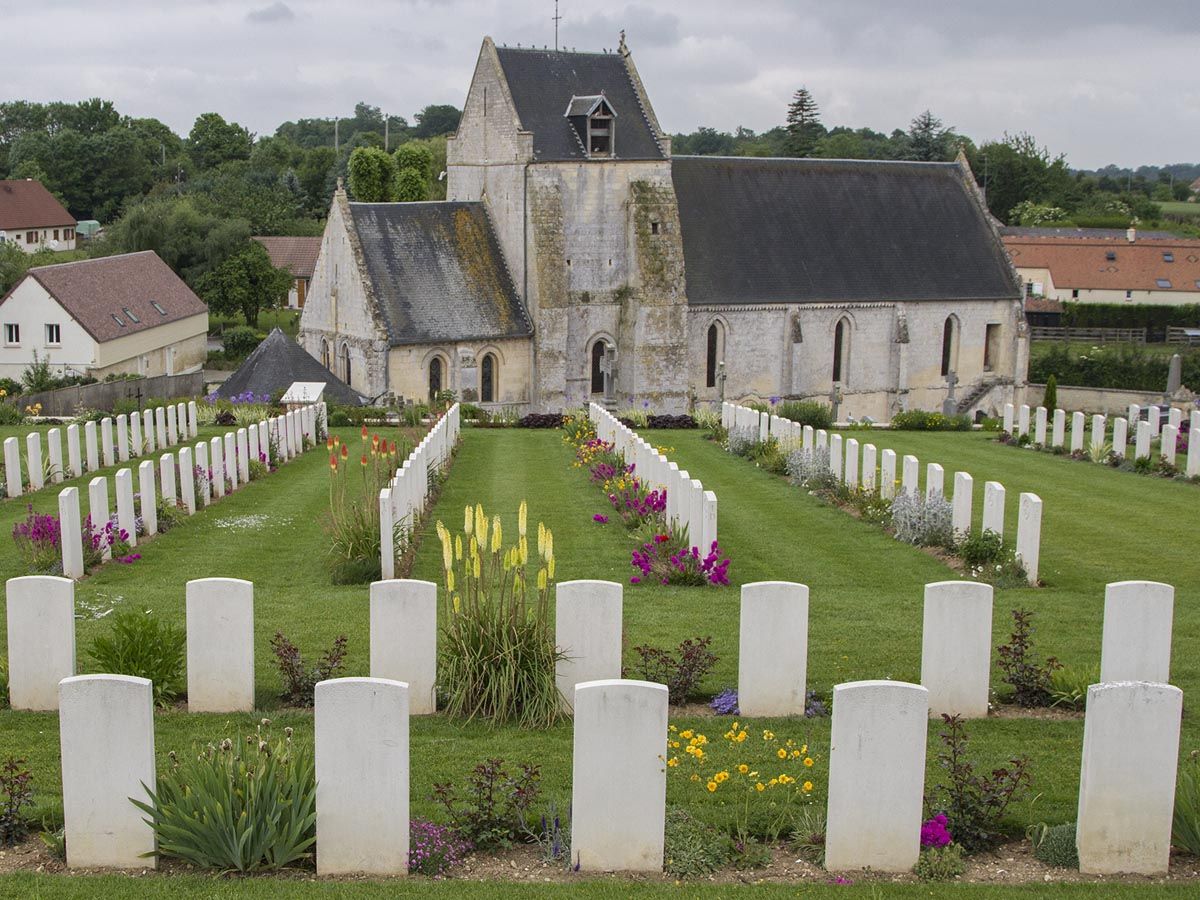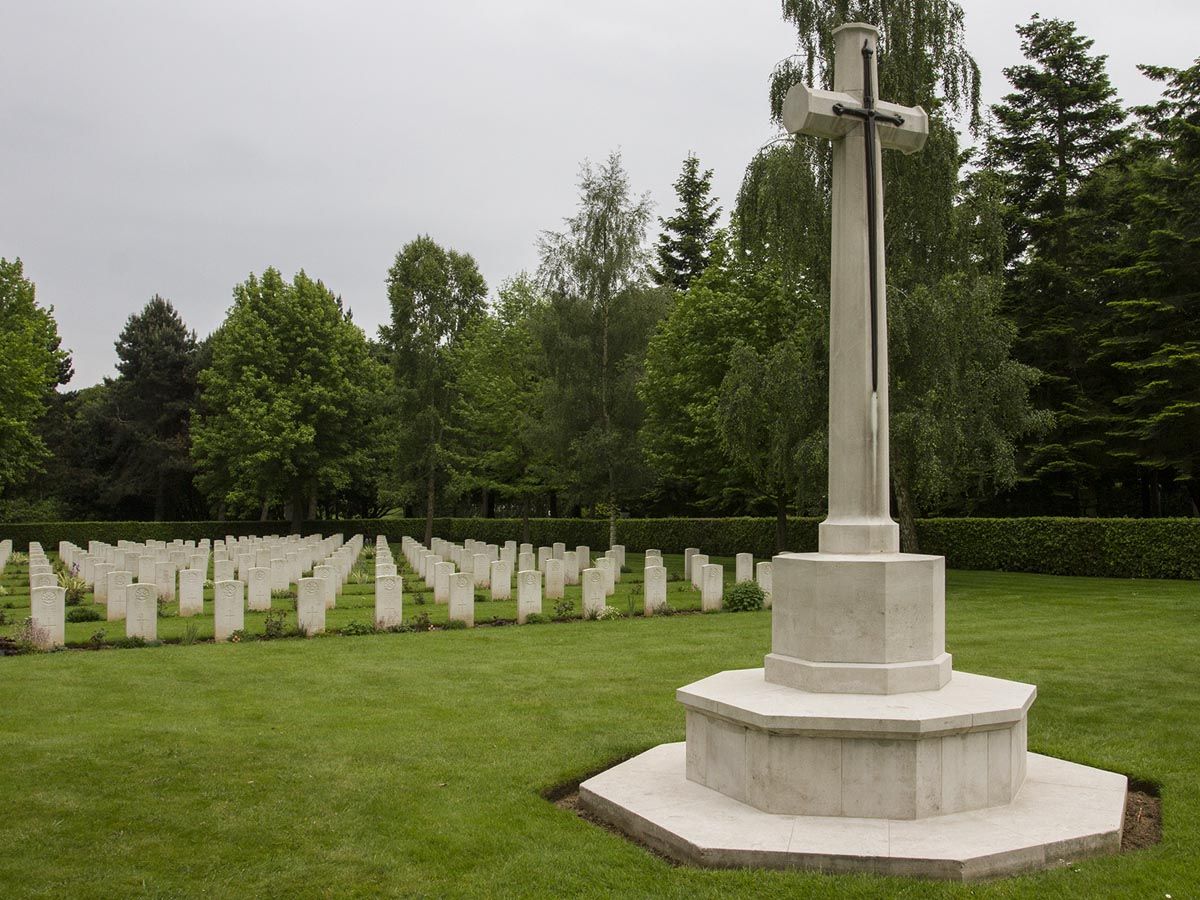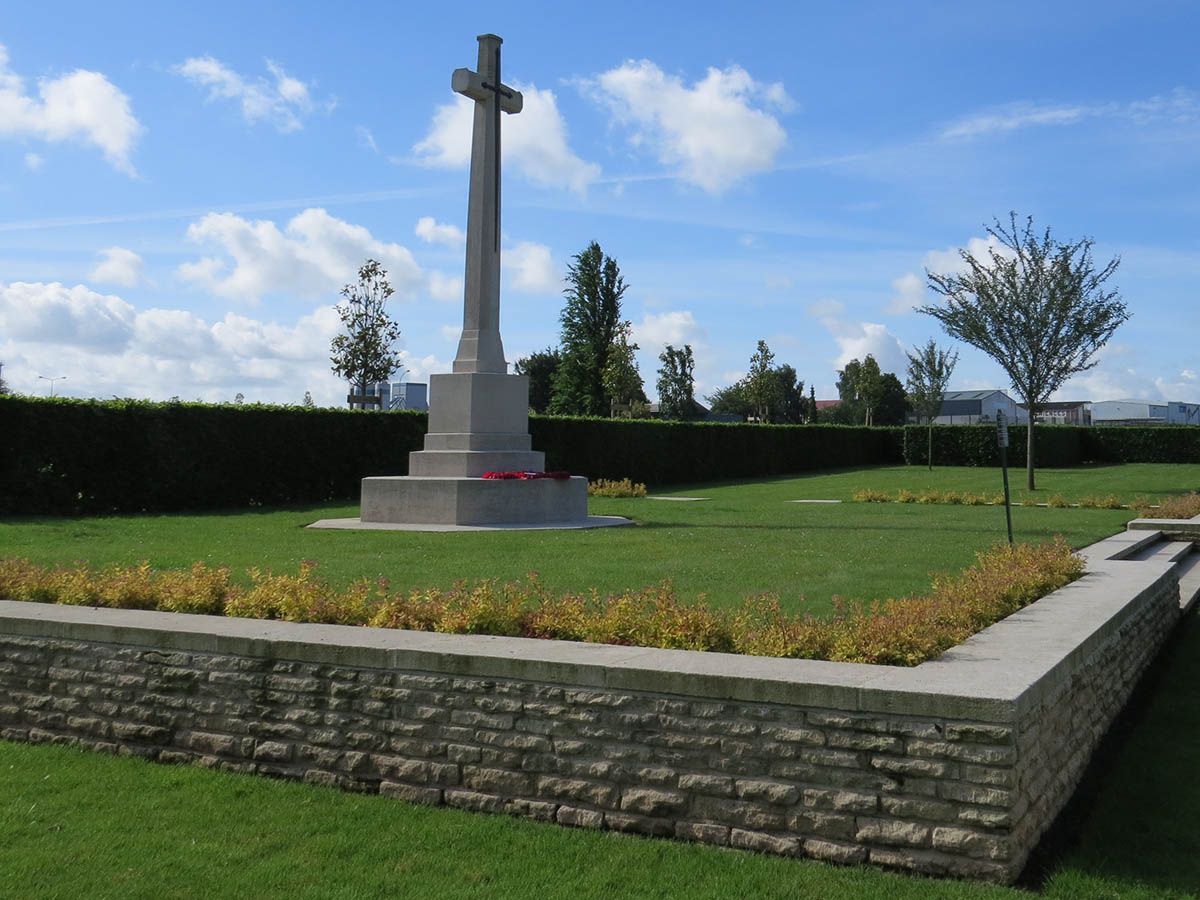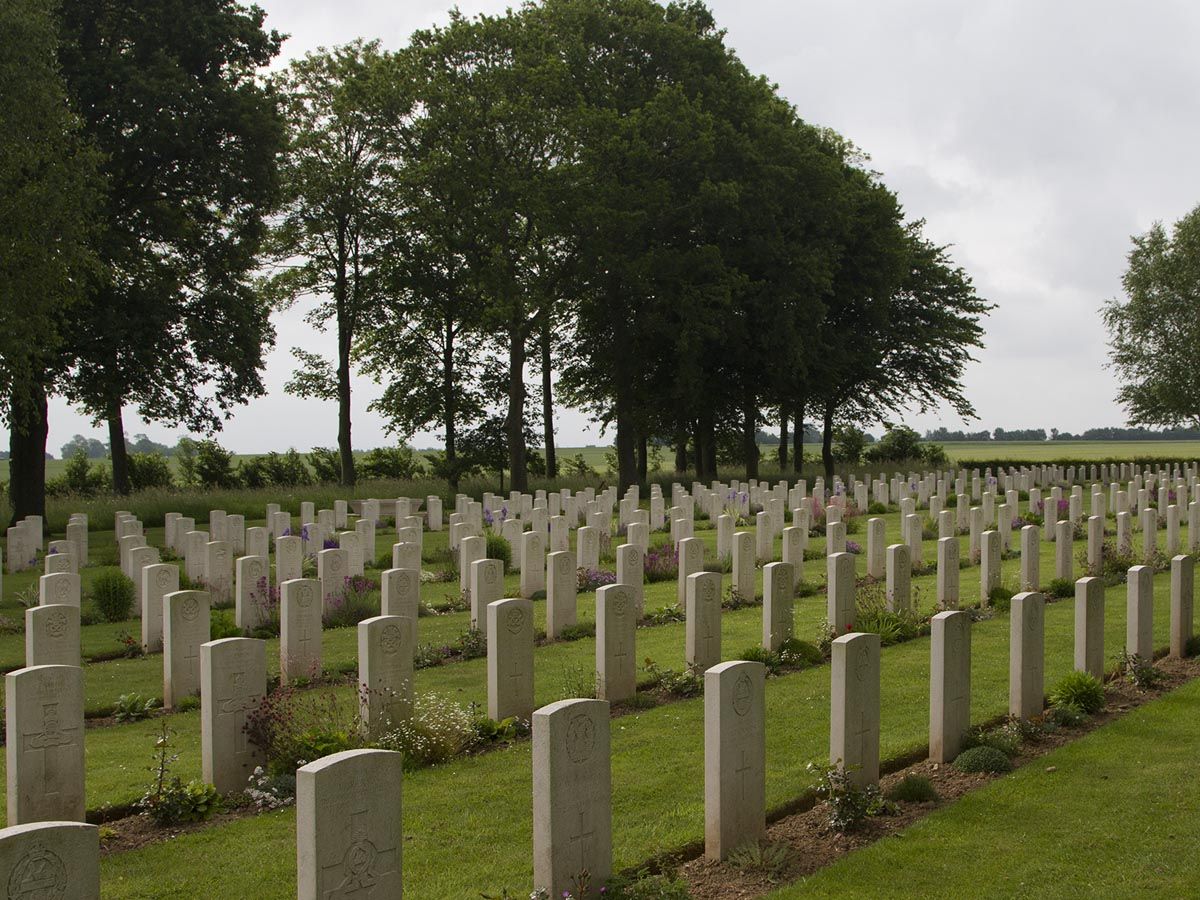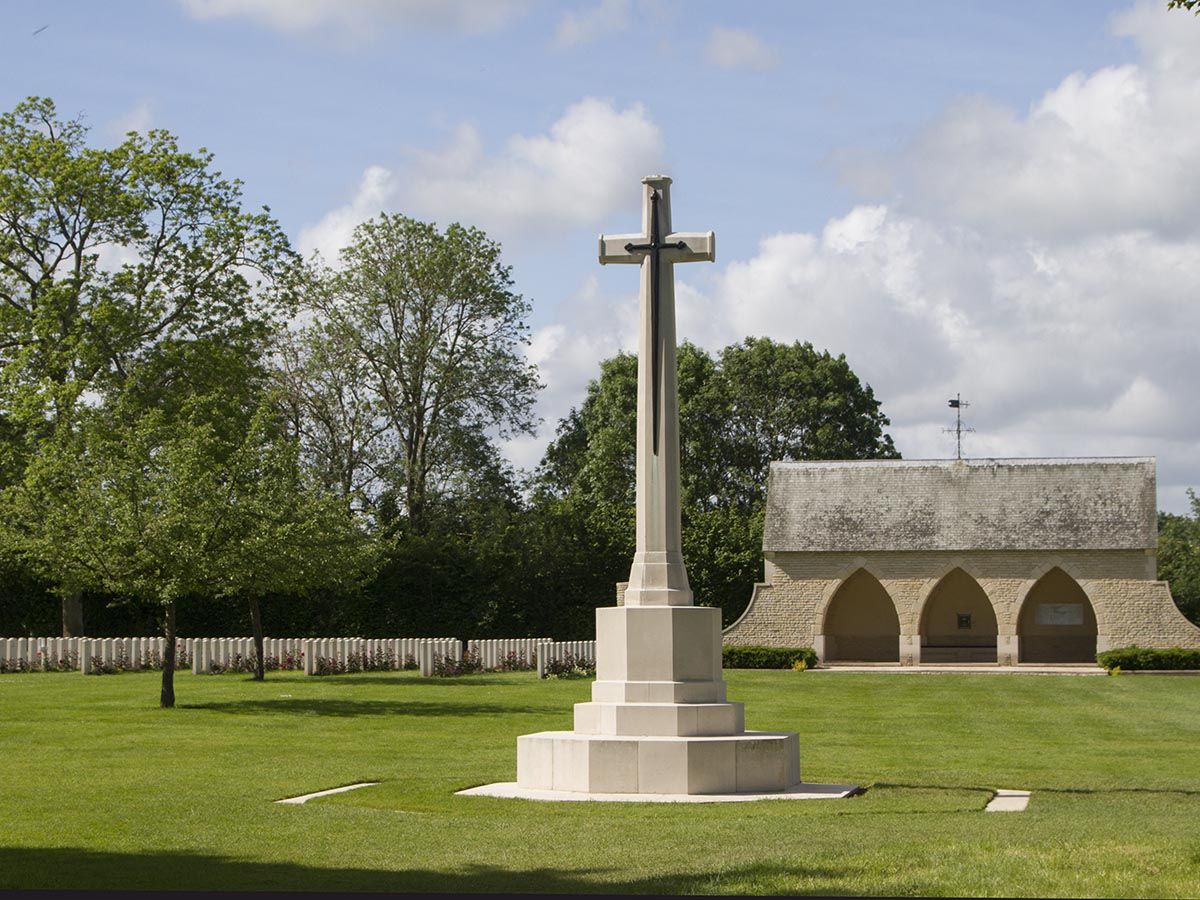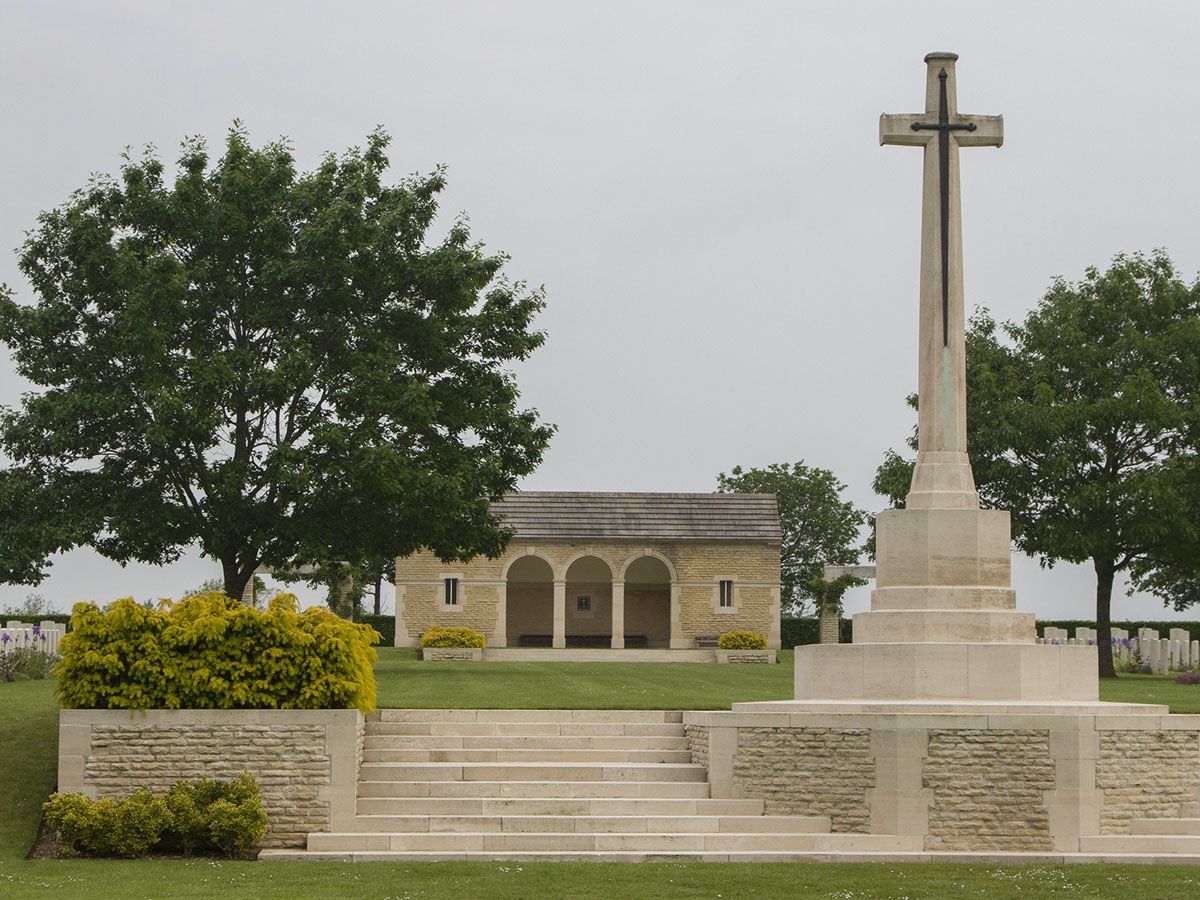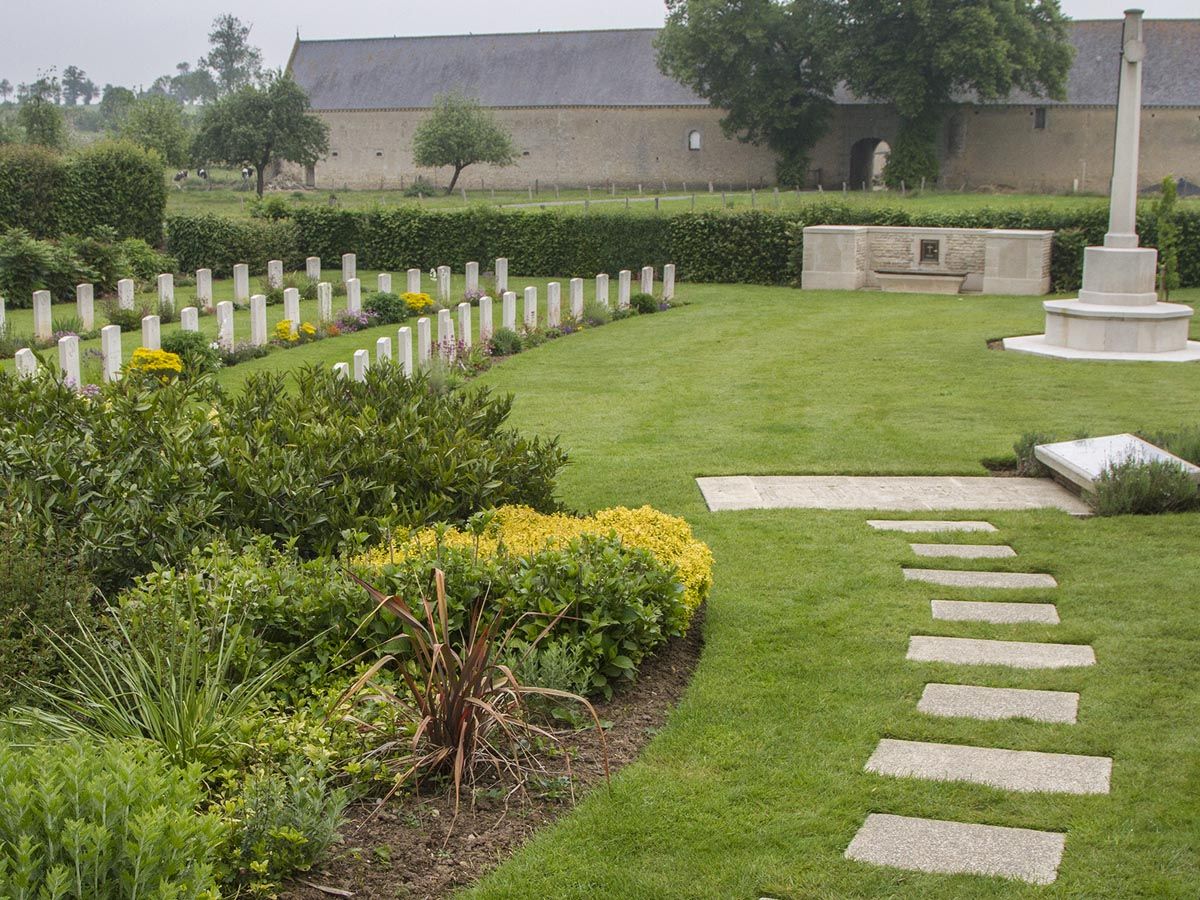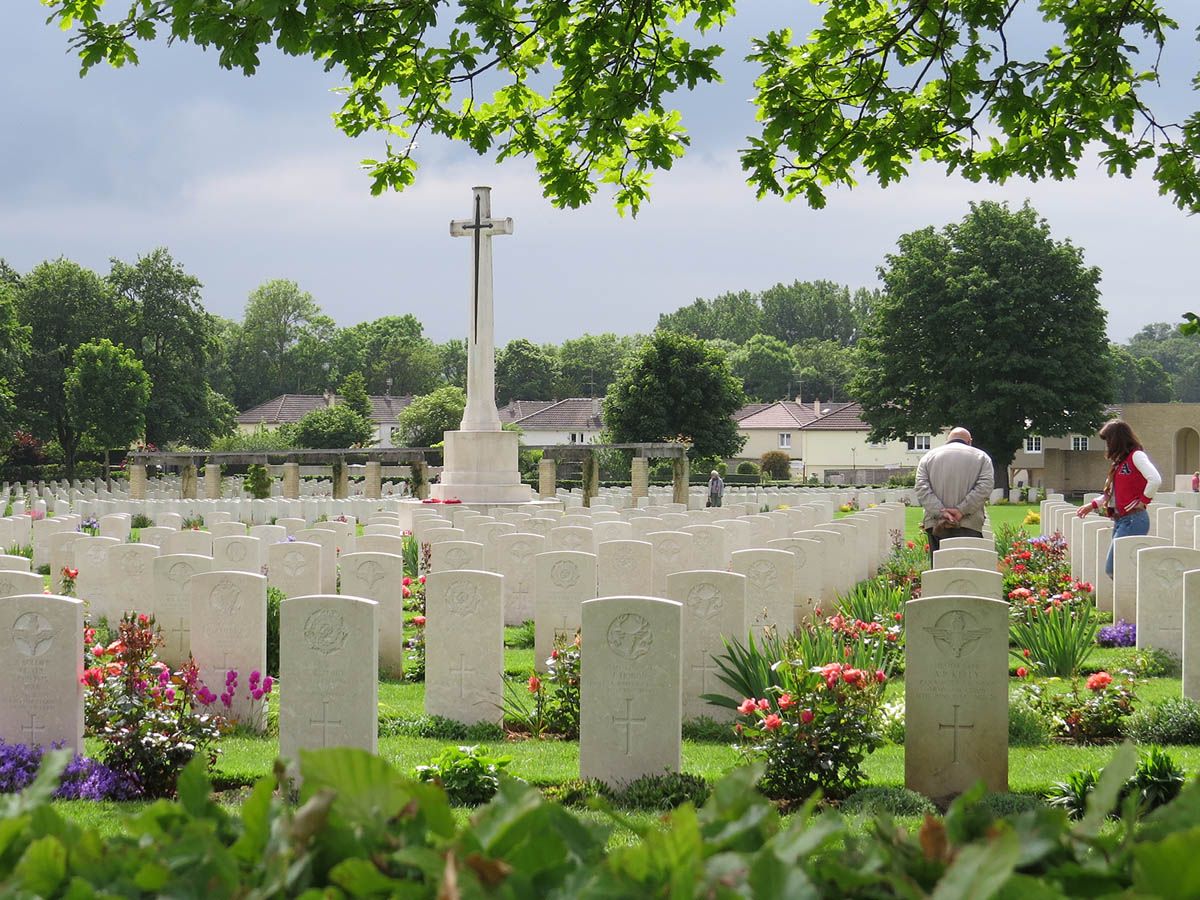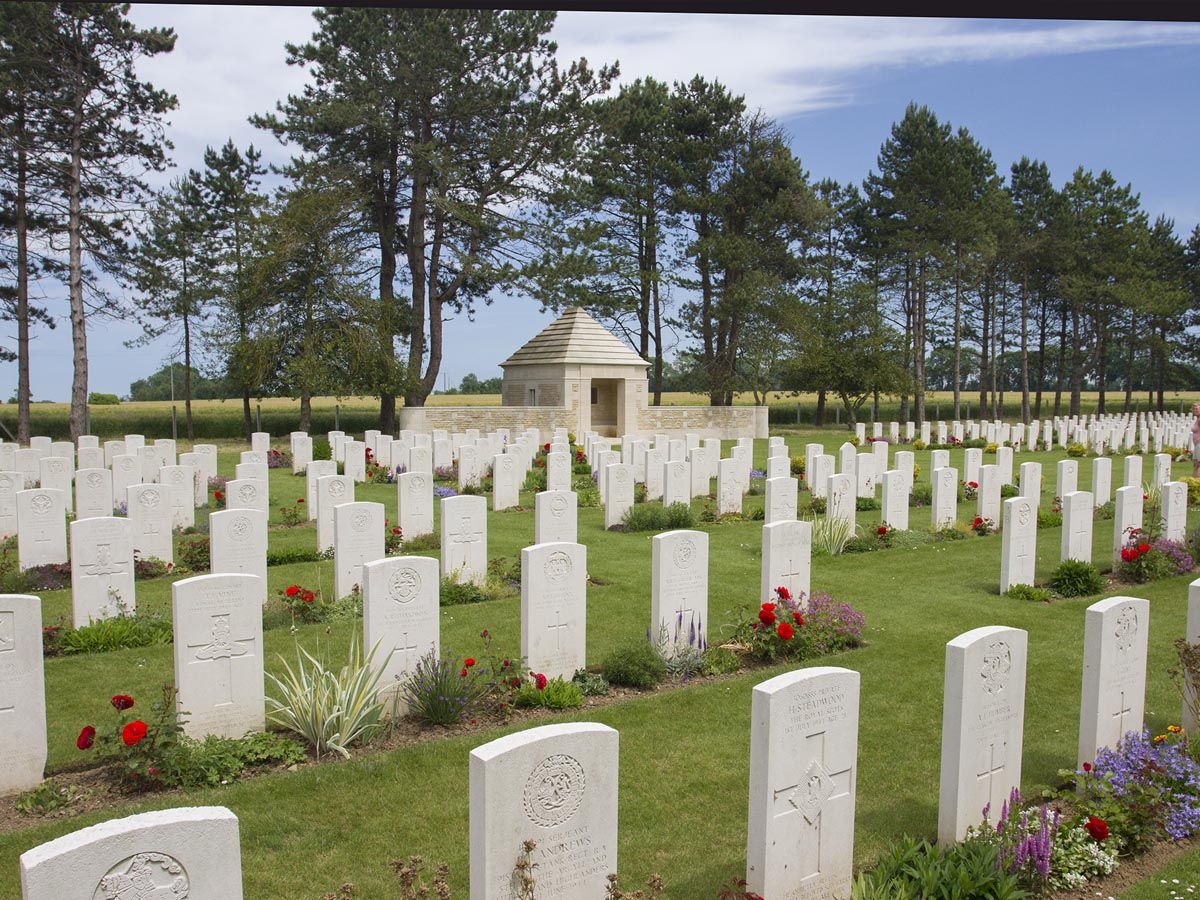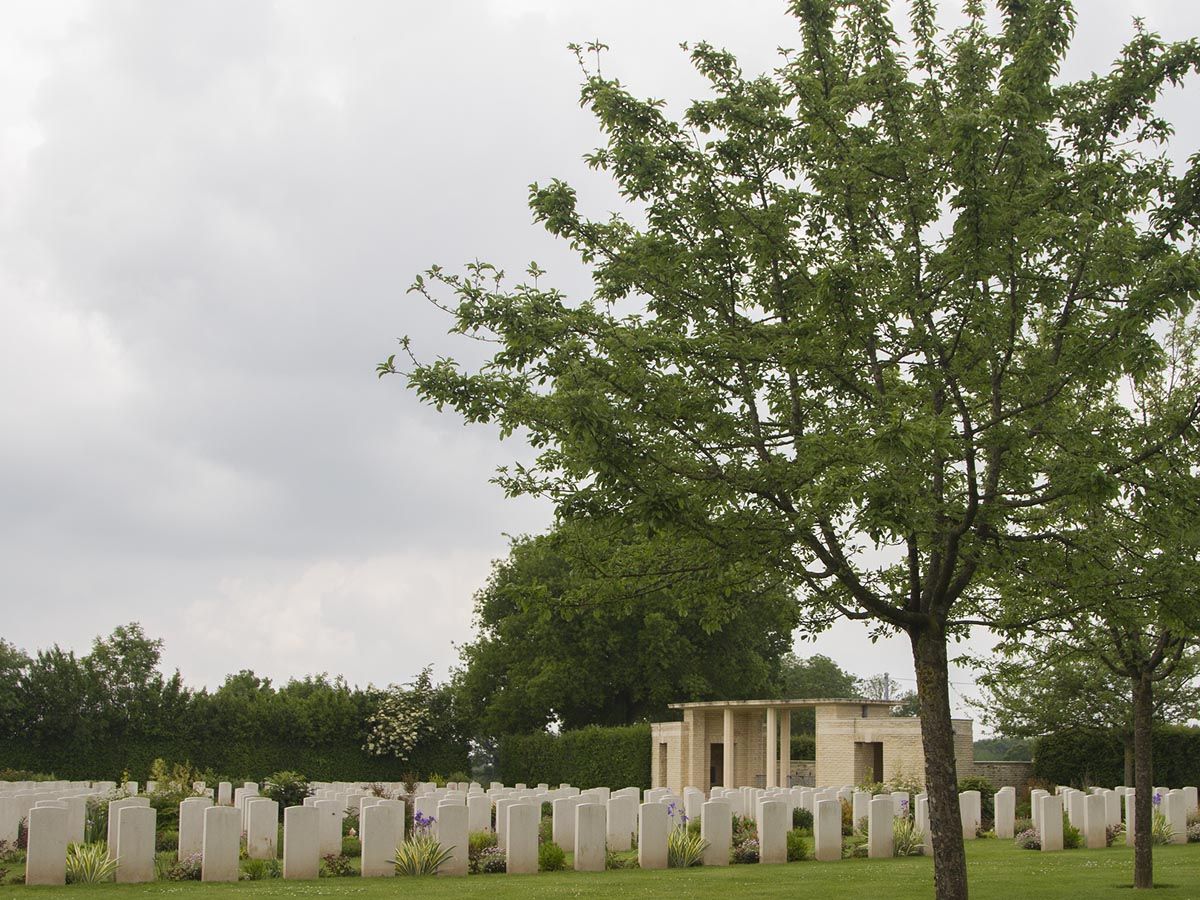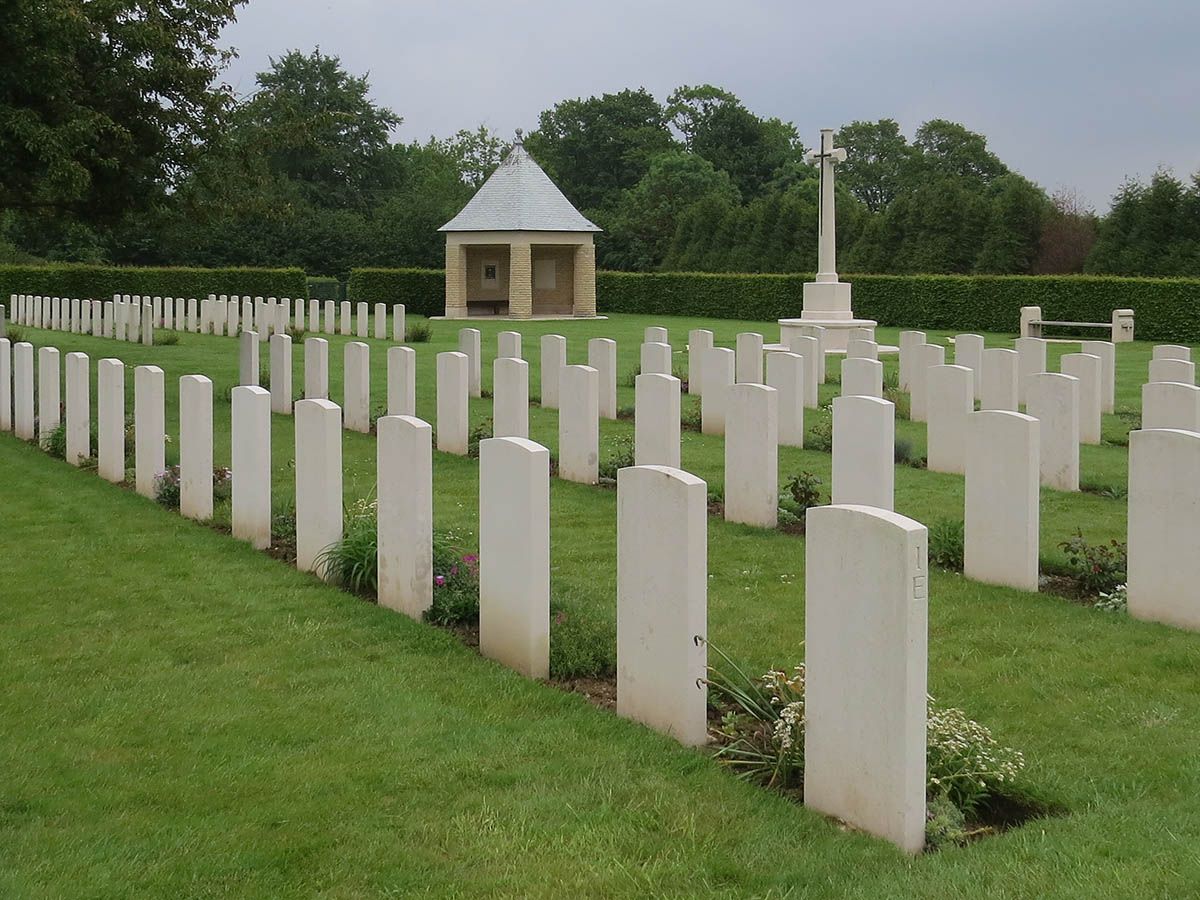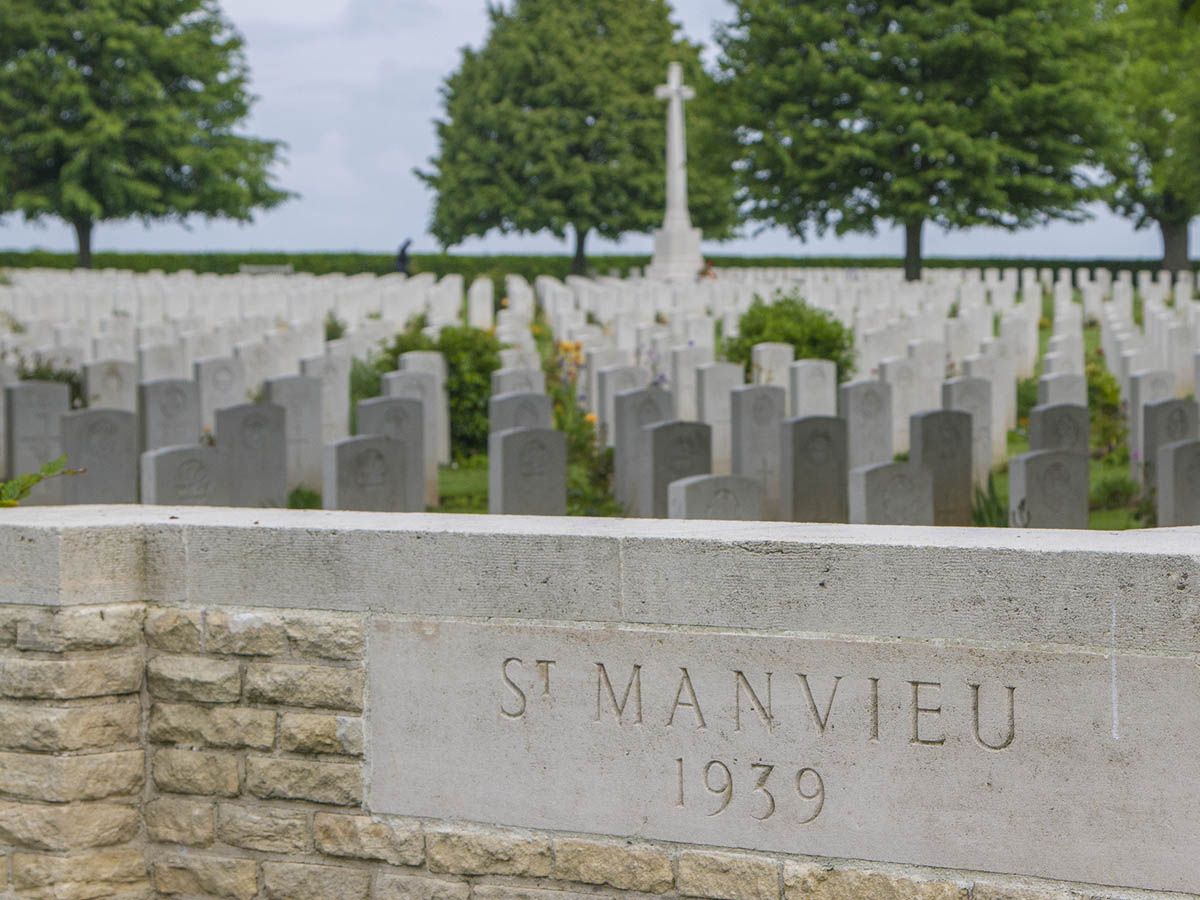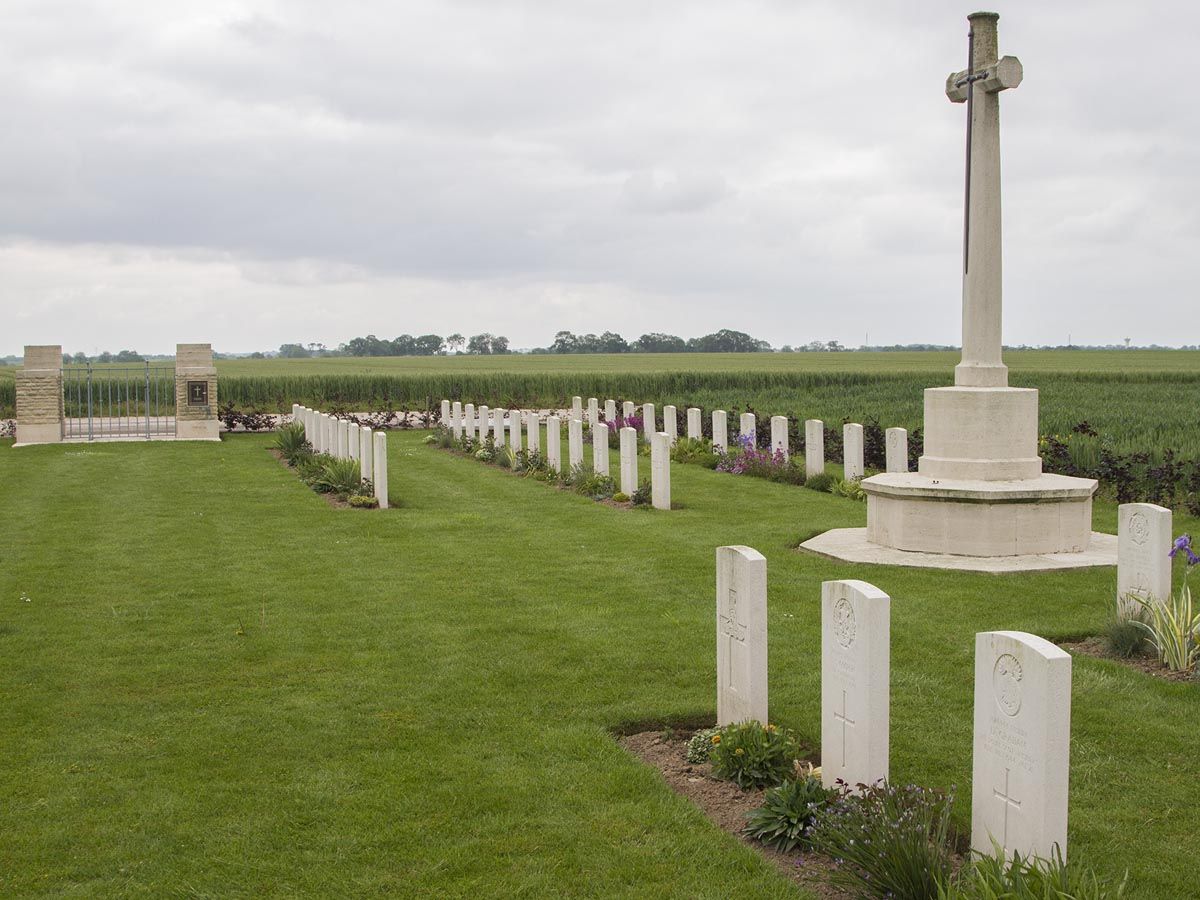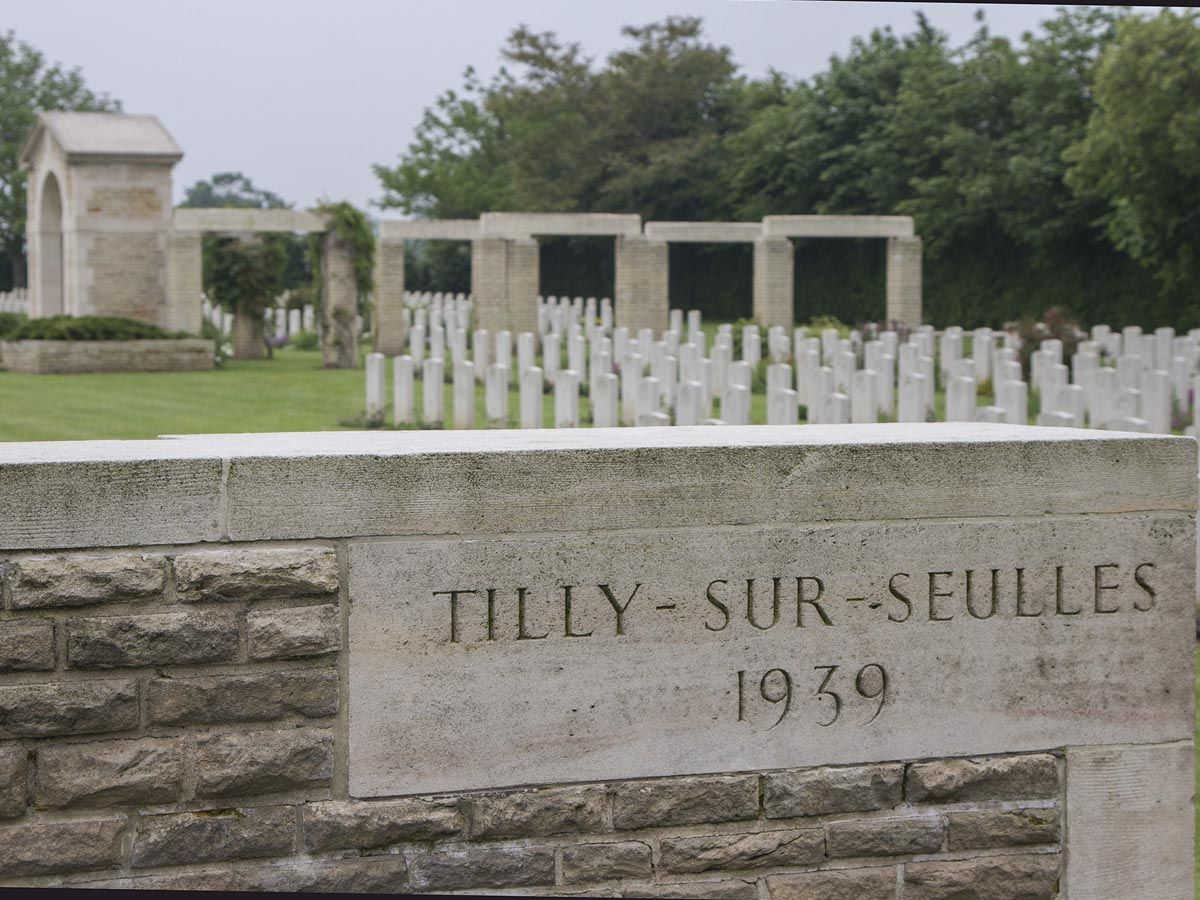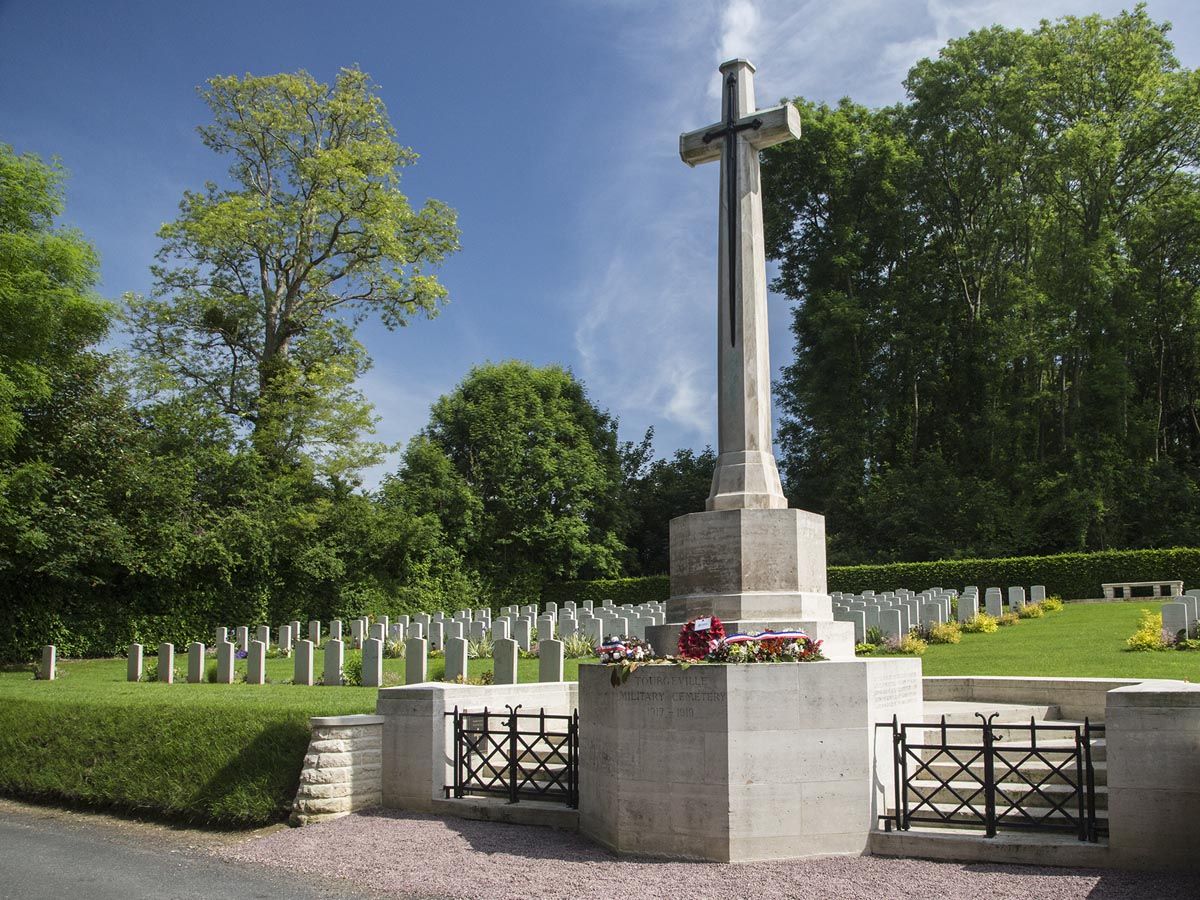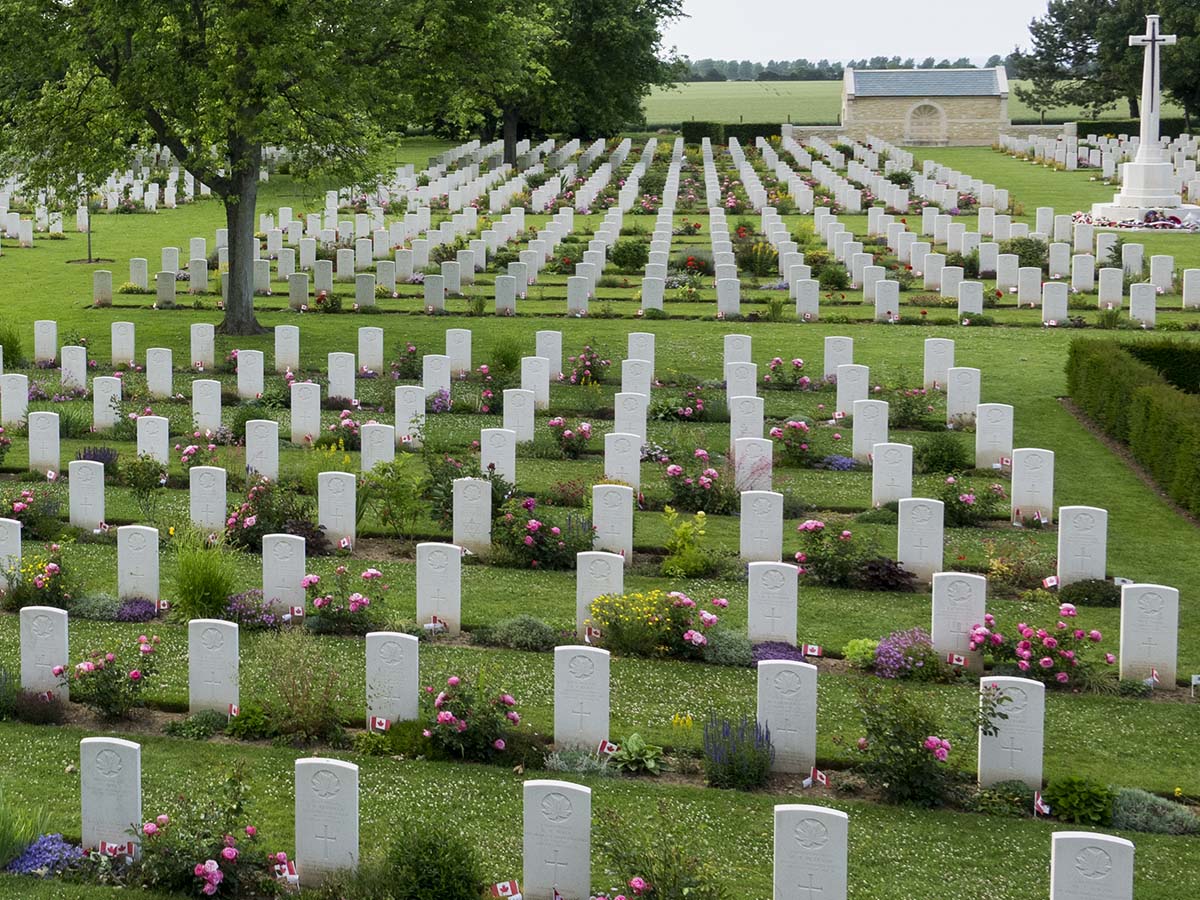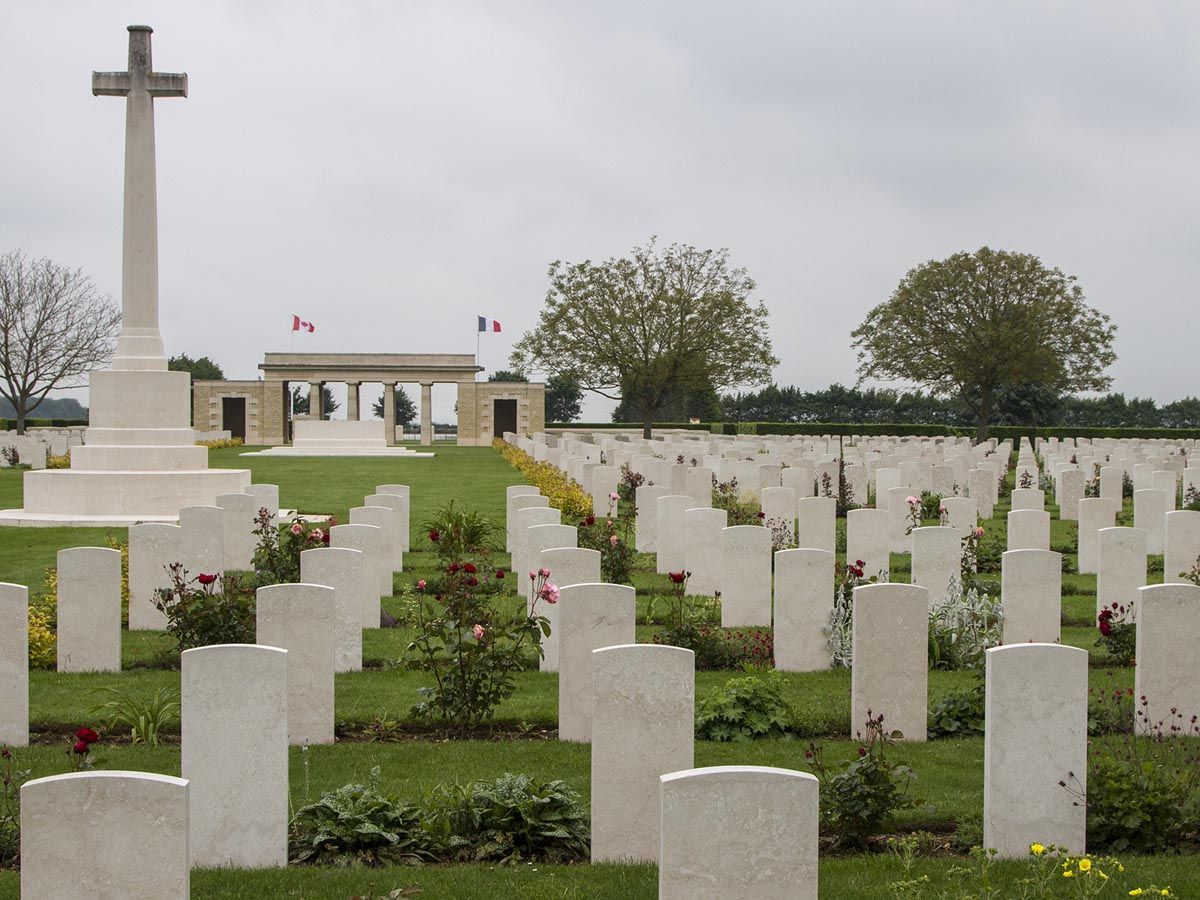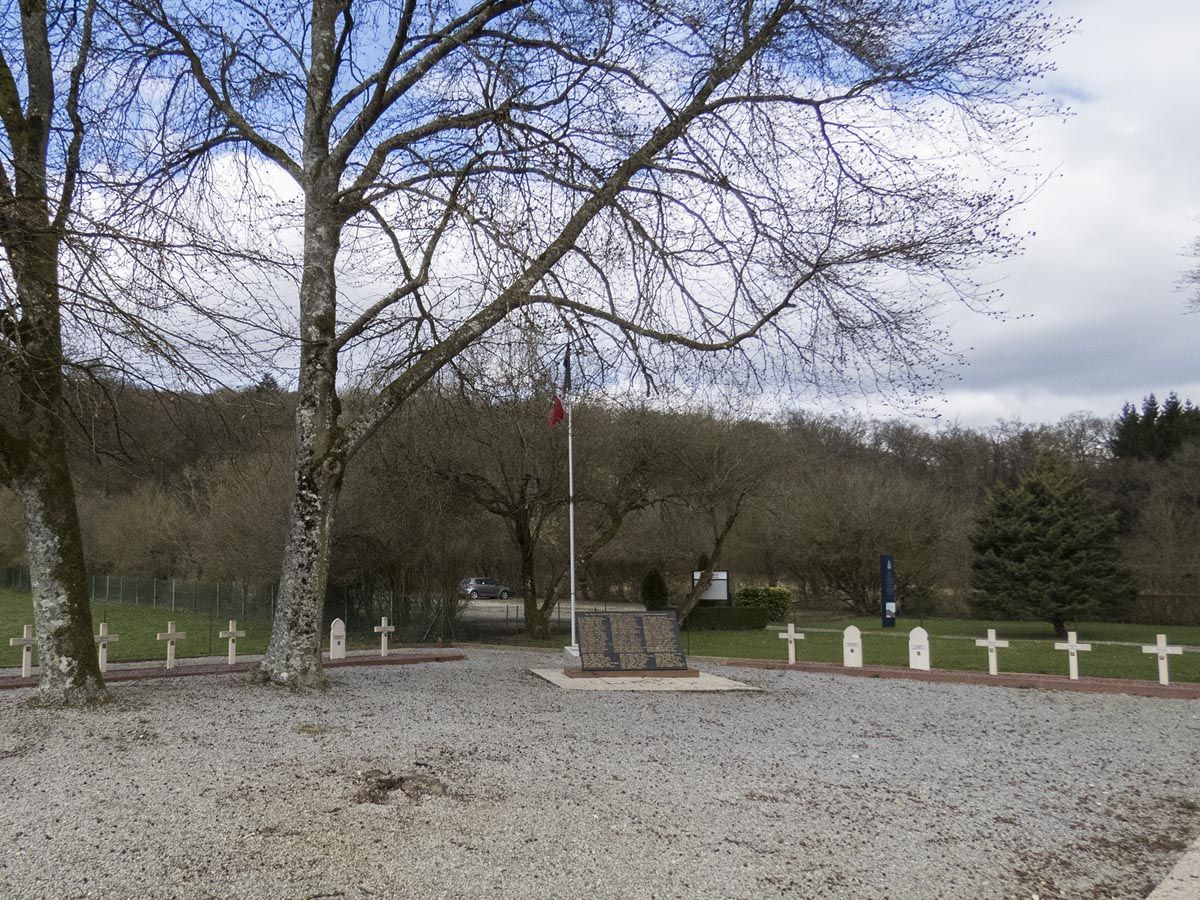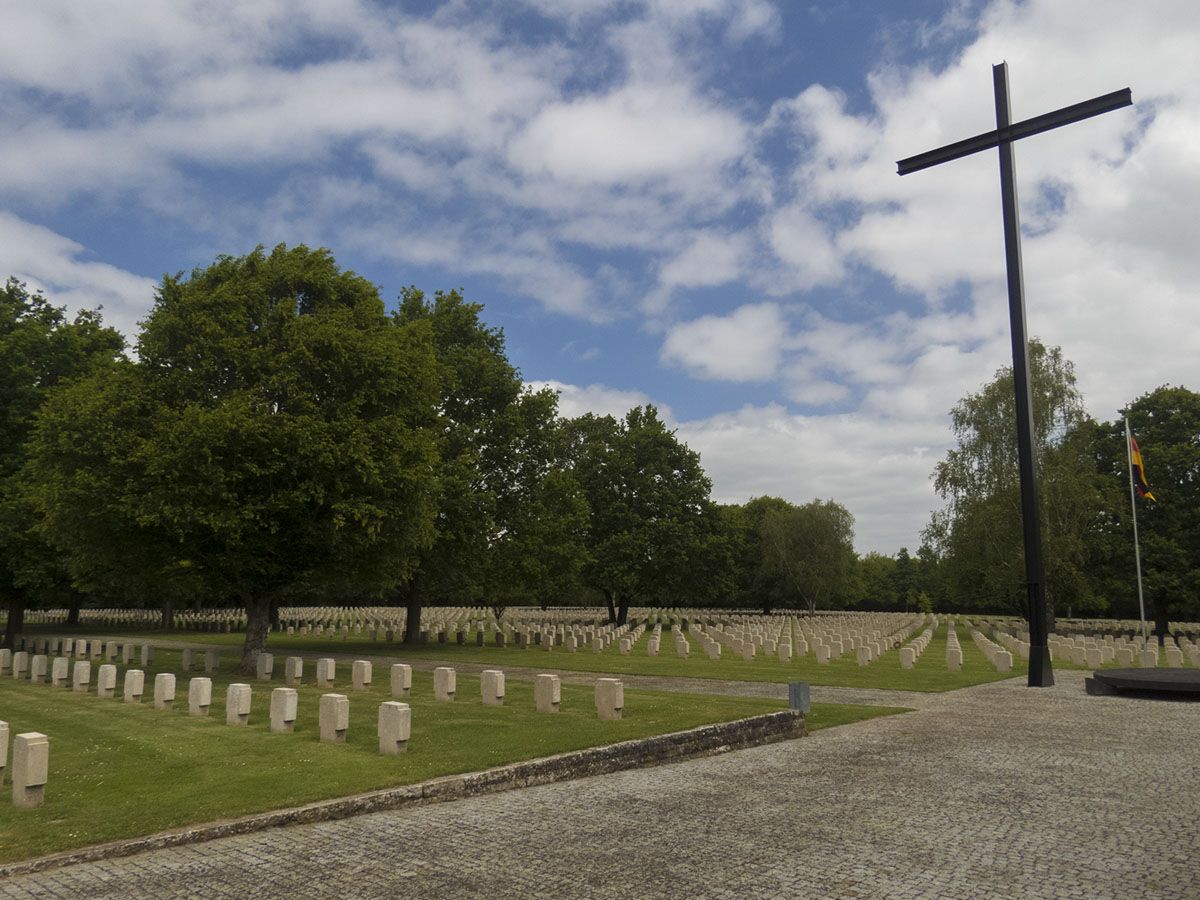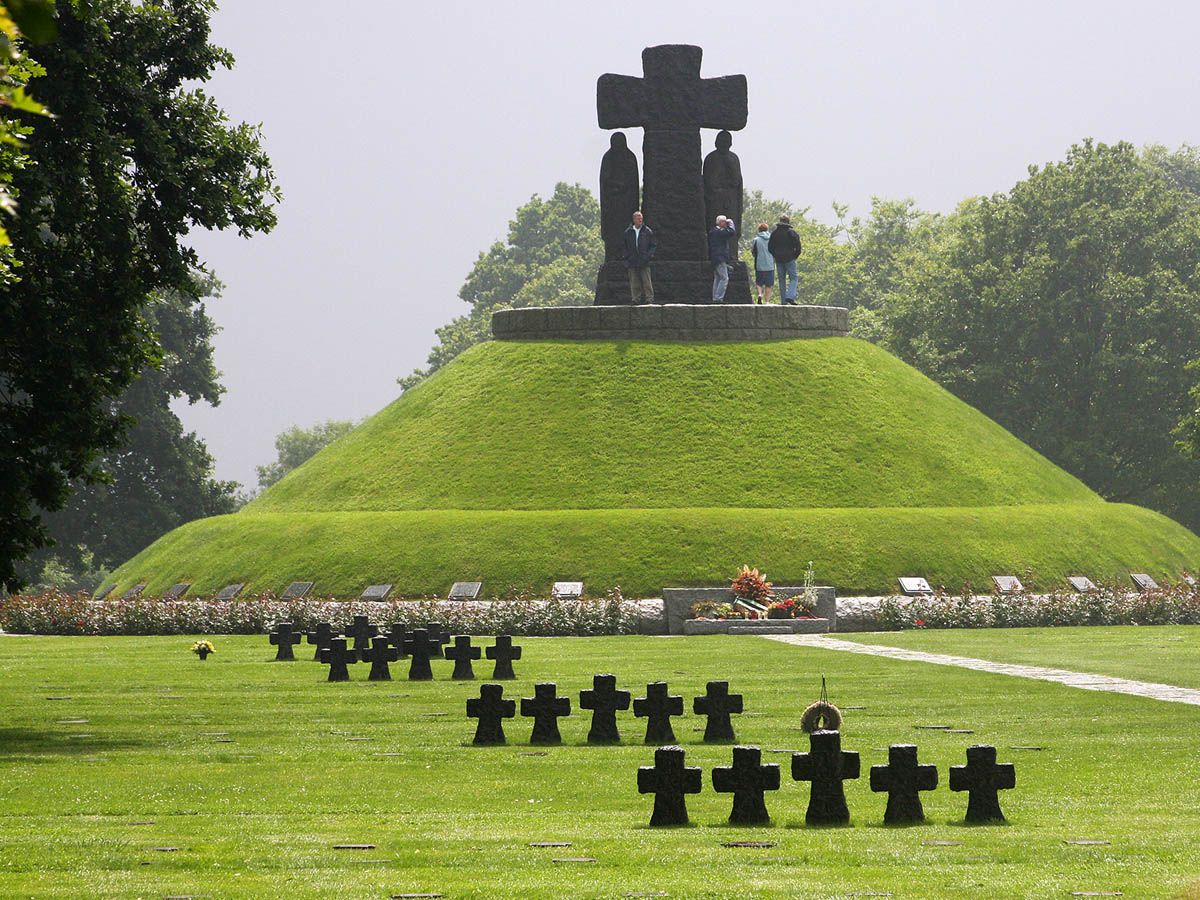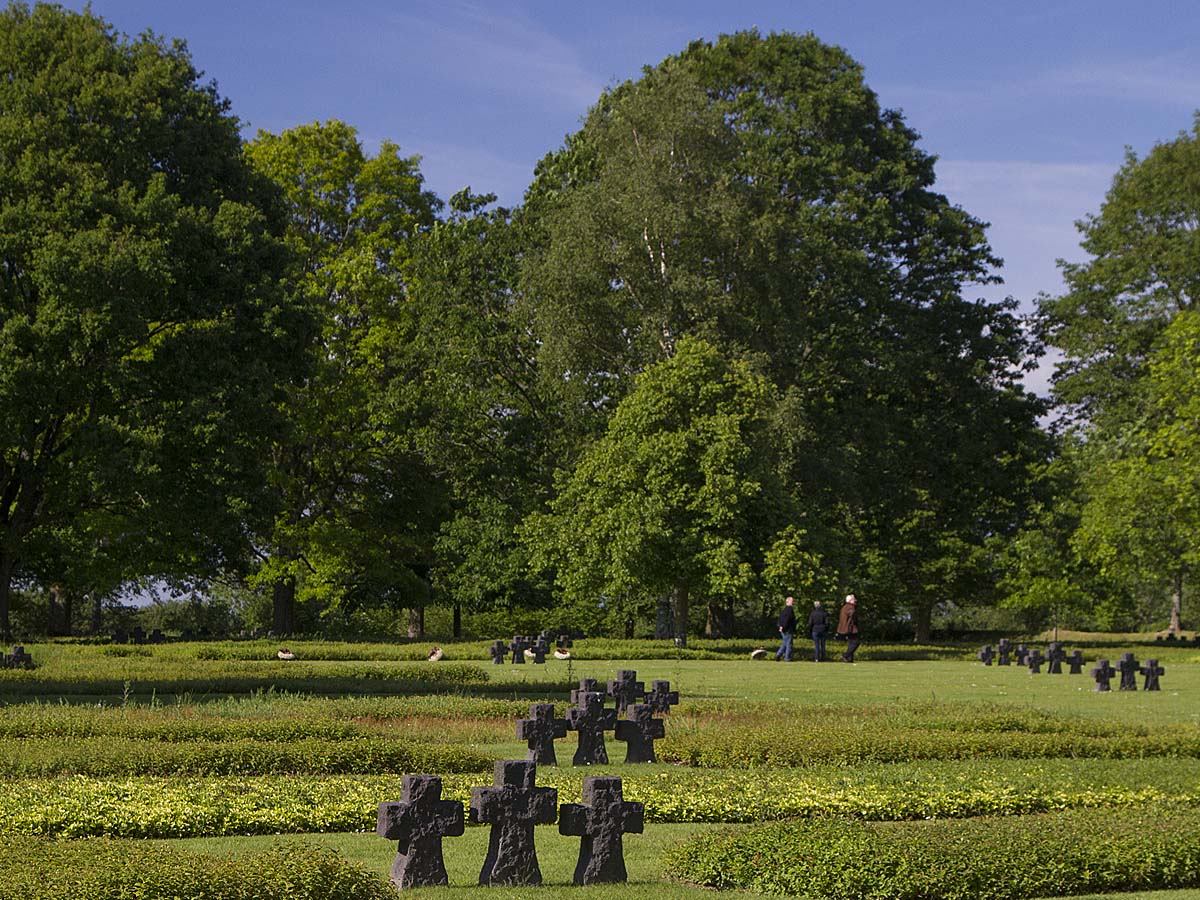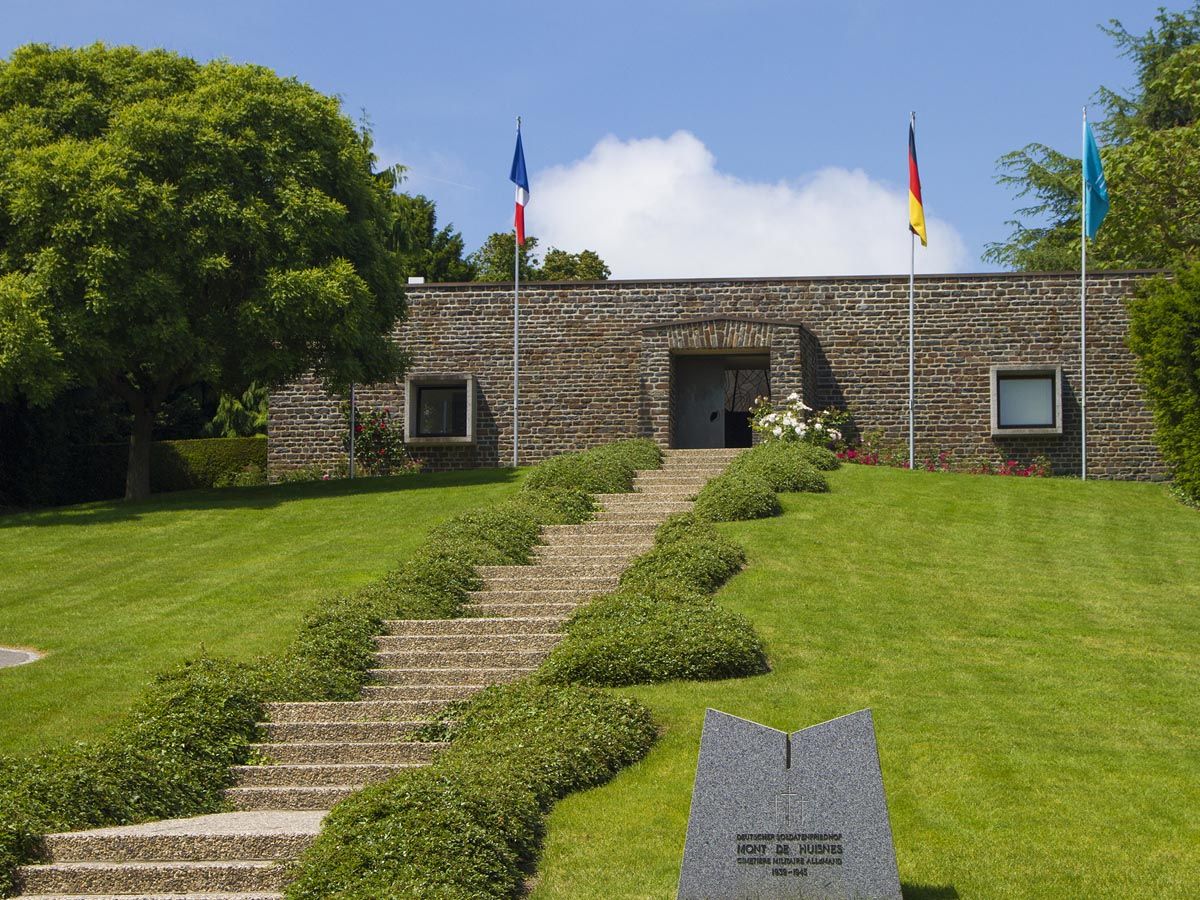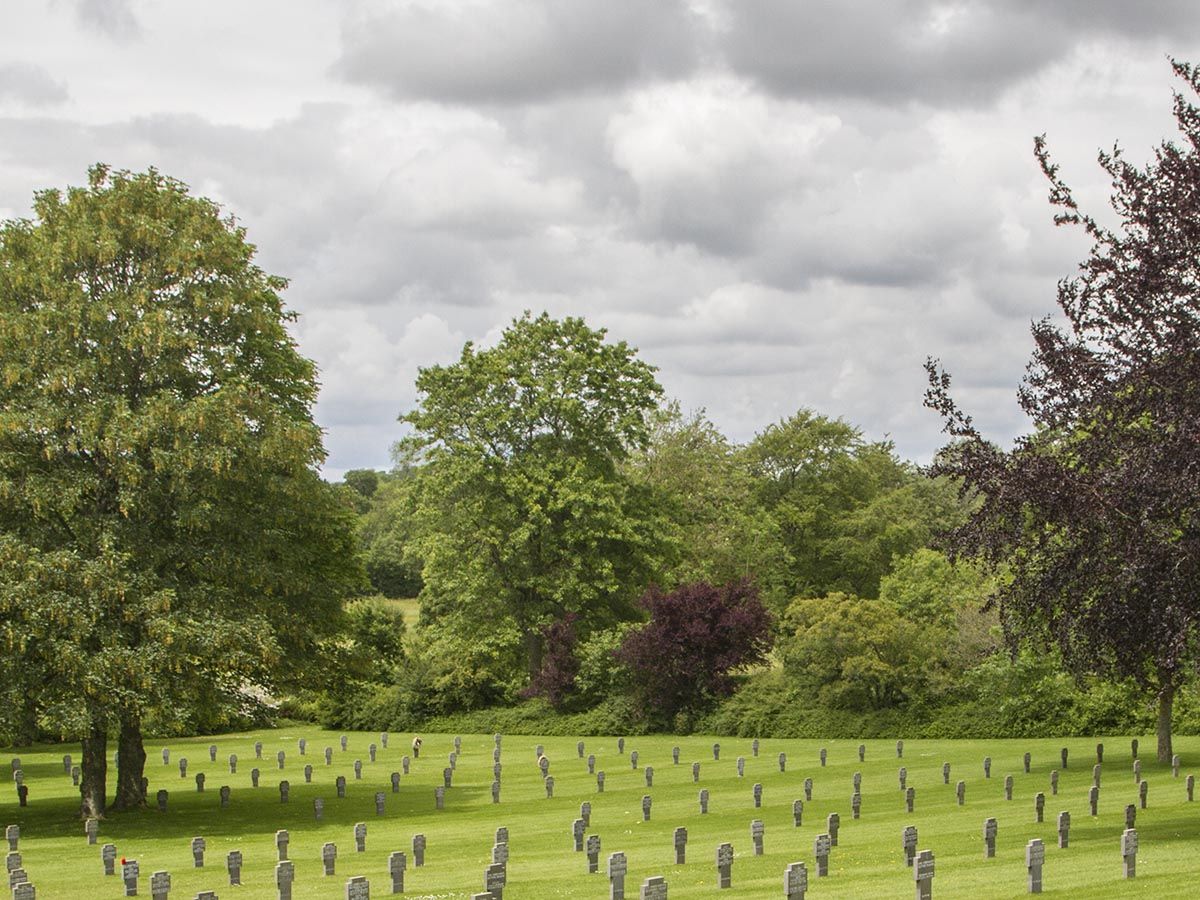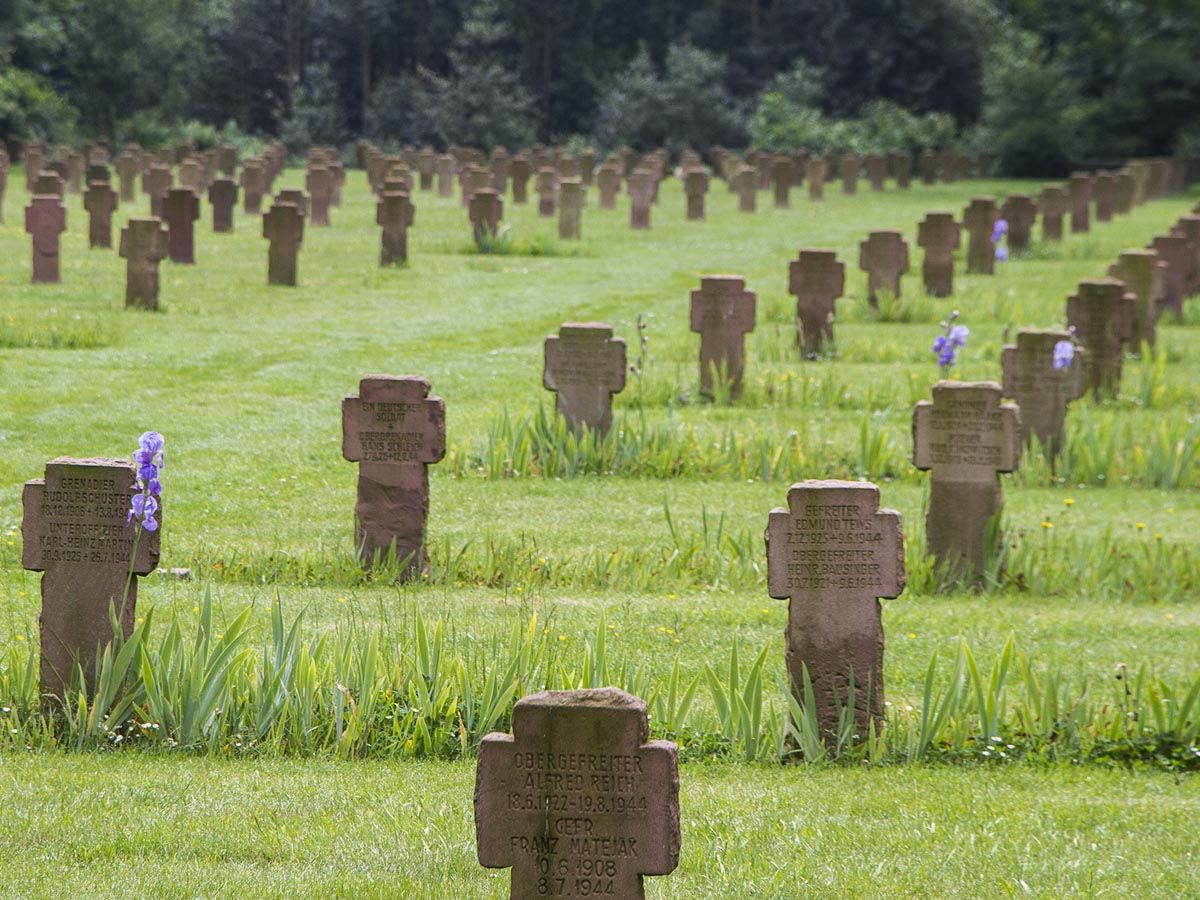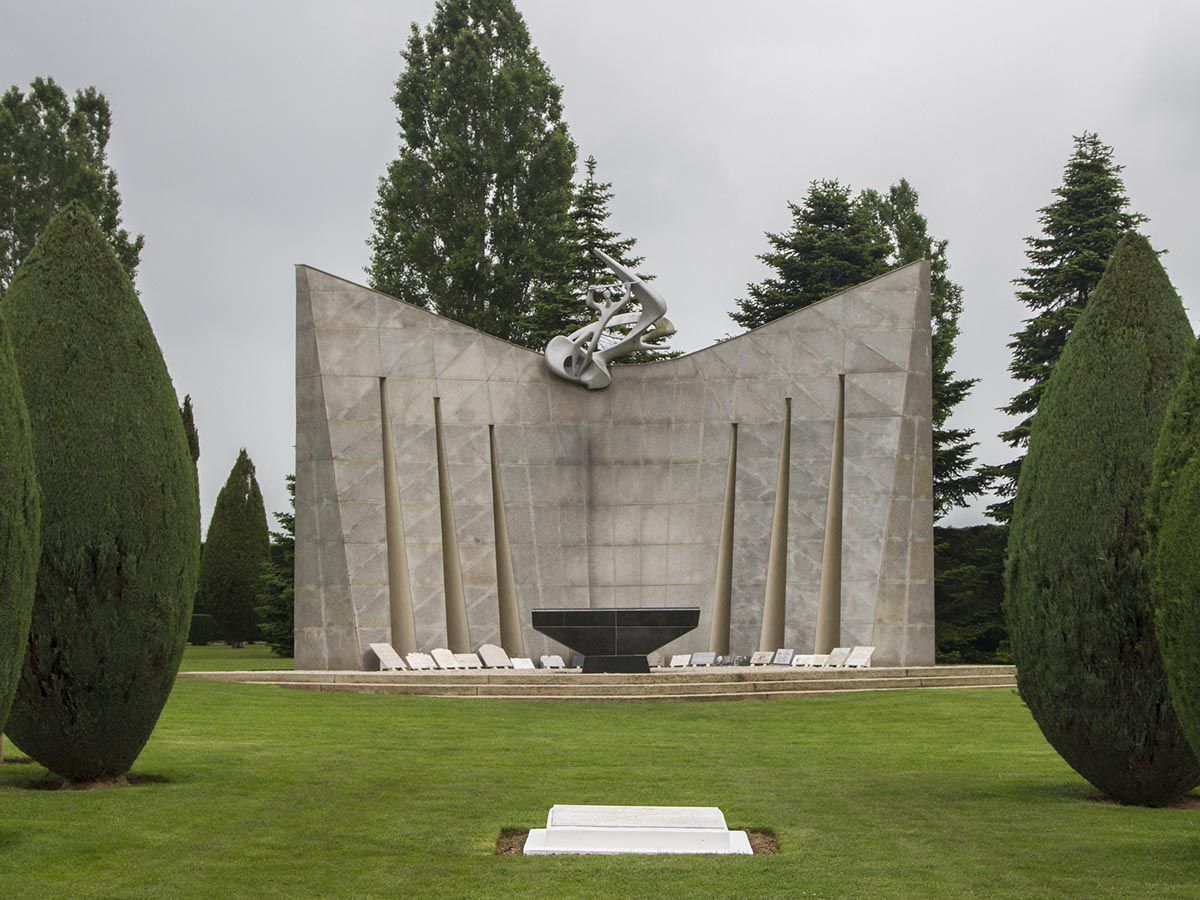Just a few miles west of Caen, France, lies a serene place of remembrance that often goes unnoticed by travelers. Cambes-en-Plaine War Cemetery is a beautifully maintained memorial ground where 224 soldiers from the Second World War found their final resting place. More than half of these graves belong to brave men who made the ultimate sacrifice during the Allied push inland following the D-Day landings in Normandy.
When you visit, you’ll find the cemetery open year-round, accessible 24 hours a day. The peaceful grounds offer a moment of reflection amid your travels through Normandy. As you walk among the perfectly aligned headstones, you’ll feel a connection to history that guidebooks alone cannot provide.
This small but significant cemetery tells a powerful story about the human cost of liberty. While not as widely known as some larger war memorials in the region, its intimate scale allows for a more personal experience. You can easily include this meaningful stop in your Normandy itinerary, giving yourself time to pay respects to those who helped secure the freedom we enjoy today.
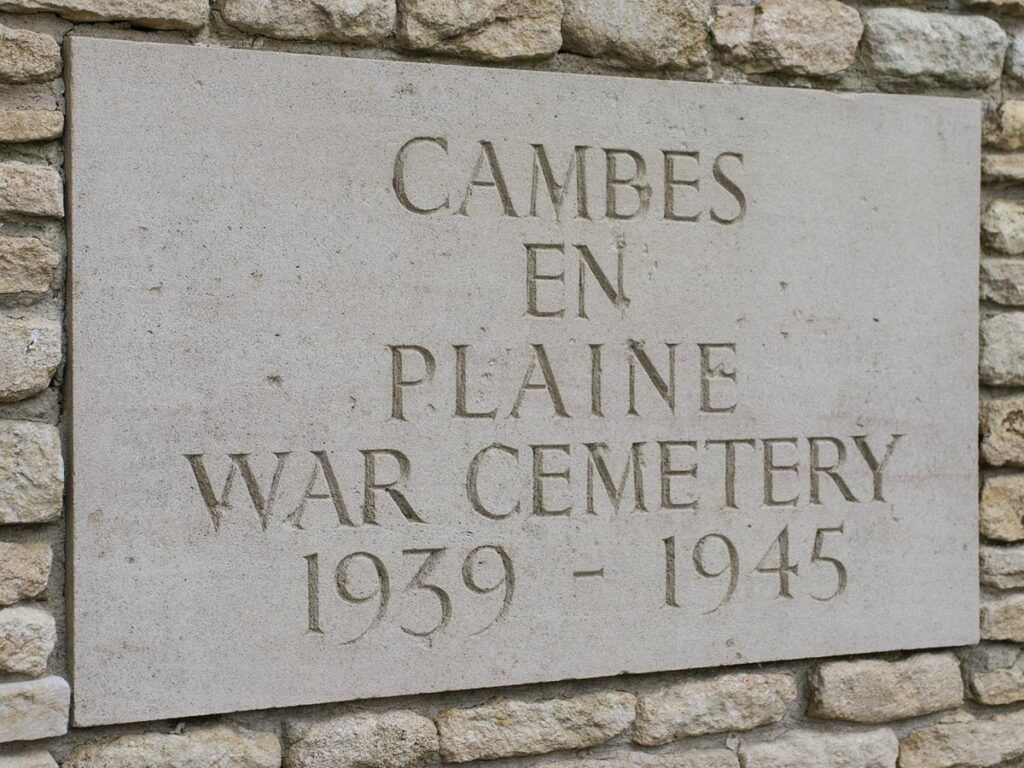
History and Significance
Cambes-en-Plaine War Cemetery stands as a solemn reminder of the sacrifices made during the Normandy Campaign in World War II. This carefully maintained site tells the story of Operation Charnwood and the battle for Caen in July 1944.
The founding of Cambes-en-Plaine War Cemetery
The cemetery was established shortly after D-Day as Allied forces pushed inland from the Normandy beaches. The location was chosen because of its proximity to significant battle sites around Caen. The first burials took place between July 8-12, 1944, during Operation Charnwood – the Allied offensive to capture Caen.
Unlike many Commonwealth War Graves Commission cemeteries that were created after the fighting ended, Cambes-en-Plaine developed during actual combat operations. This gives it a unique place among military cemeteries in Normandy.
The site was designed by architect P.D. Hepworth, who created a simple yet dignified layout that honors the fallen while reflecting the solemnity of their sacrifice.
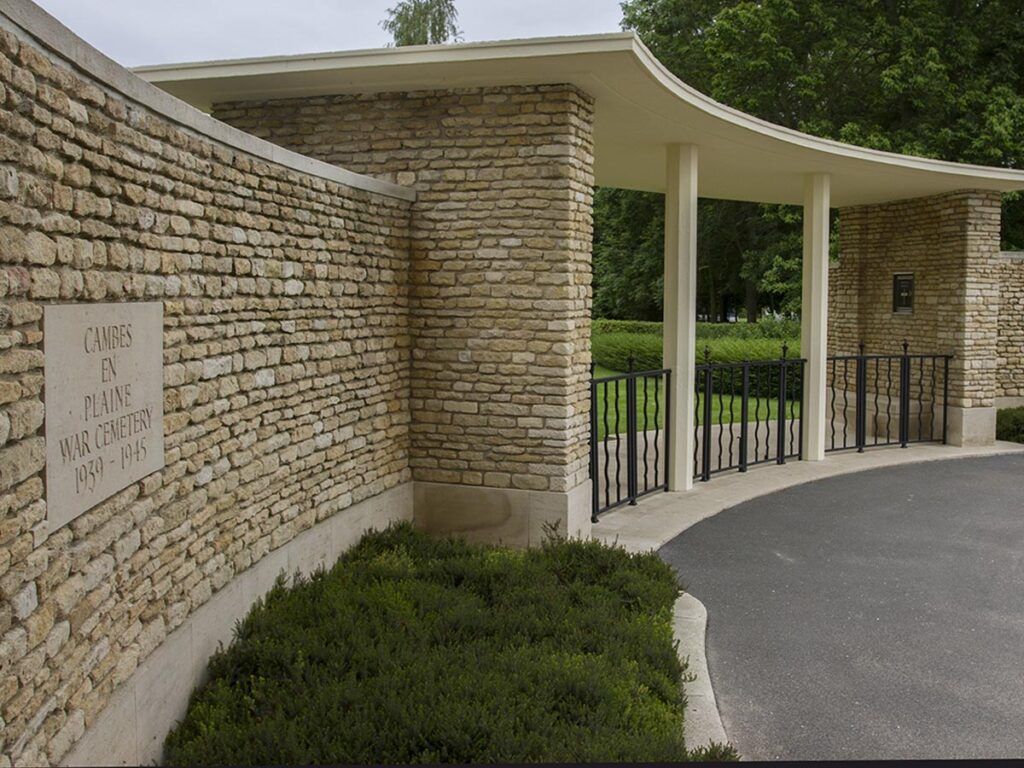
The Role in World War II
Cambes-en-Plaine sits just 7 kilometers northwest of Caen, a city that proved crucial in the Allied advance. The town of Cambes-en-Plaine itself was liberated three days after D-Day, but the cemetery primarily contains those who fell during the difficult battle for Caen.
By noon on July 9, 1944, most of northern Caen had been captured, but at a heavy cost. The 224 Commonwealth soldiers buried here represent that cost – primarily British troops who died securing this strategic area.
The cemetery tells the story of Operation Charnwood’s importance to the overall Normandy Campaign. Each gravestone marks someone who fell helping to secure the foothold that would eventually lead to the liberation of France.
Post-War Developments
After the war, the Commonwealth War Graves Commission took responsibility for maintaining this sacred ground. They ensured the site would permanently honor these soldiers with the dignity they deserve.
Today, the cemetery contains 224 identified casualties, with the United Kingdom accounting for 223 of these burials. The consistent headstone design follows CWGC traditions, with each stone bearing the appropriate regimental insignia, rank, name, unit, date of death, and often a personal inscription chosen by the family.
Over the years, the site has become an important stop for visitors tracing the path of the Normandy Campaign. When you visit, you’ll find immaculately maintained grounds that encourage quiet reflection on the human cost of war.
The cemetery continues to host commemorative events, especially around D-Day anniversaries, keeping alive the memory of those who never returned home.
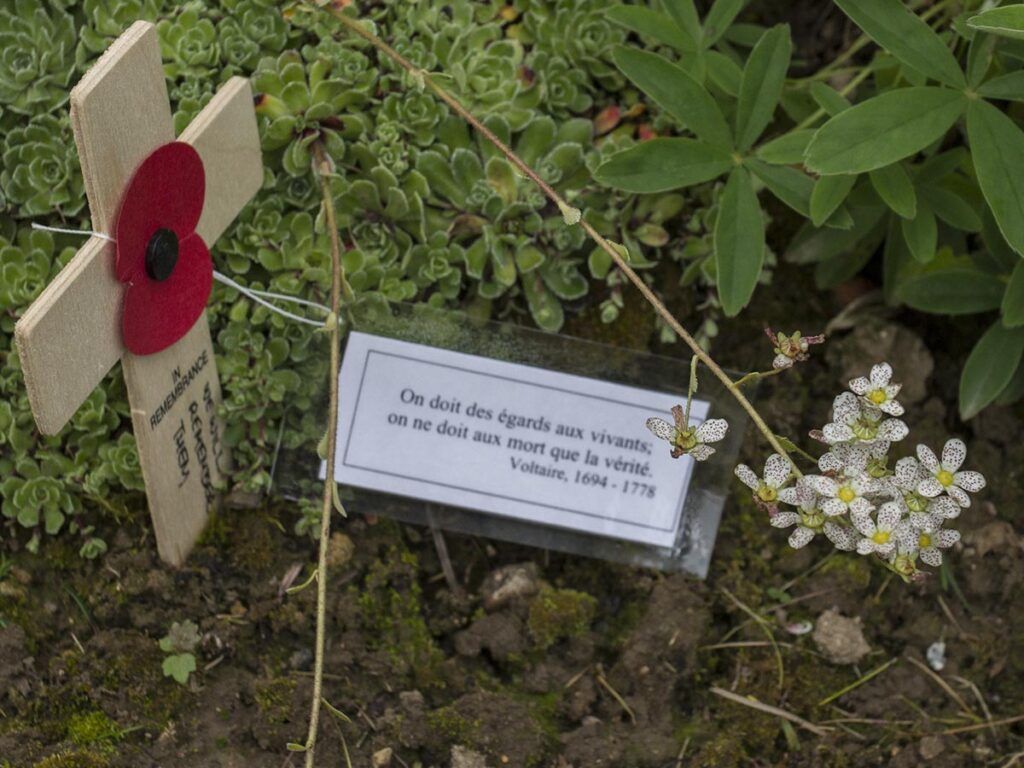
Design and Layout
The Cambes-en-Plaine War Cemetery features a thoughtful design that honors the fallen soldiers of World War II. The layout creates a peaceful atmosphere where visitors can reflect on the sacrifices made during the Normandy Campaign.
Architectural Overview
The cemetery follows the classic Commonwealth War Graves Commission design with elegant simplicity. As you enter, you’ll notice the Stone of Remembrance bearing the words “Their Name Liveth For Evermore.” This central feature provides a focal point for reflection.
The Cross of Sacrifice stands tall against the Normandy sky, a powerful symbol designed by architect Sir Reginald Blomfield. Its bronze sword attachment represents the military character of those commemorated here.
Surrounding landscaping includes carefully maintained lawns and flowering plants that change with the seasons. This thoughtful horticulture creates a garden-like setting, bringing warmth and life to a place of remembrance.
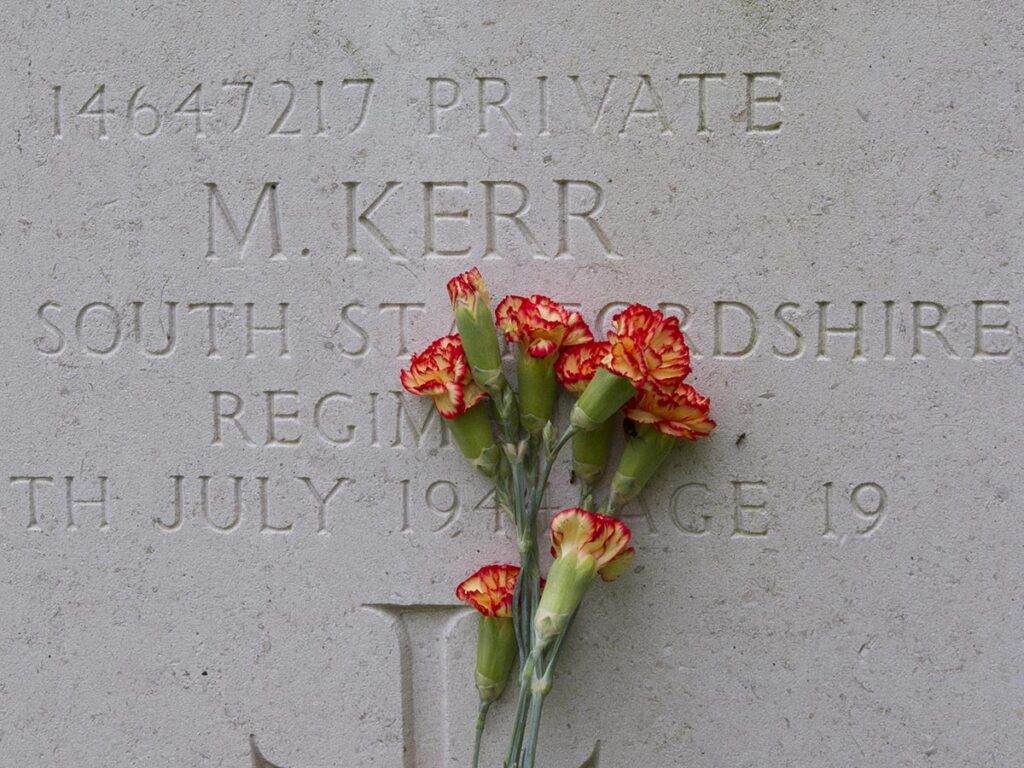
The Graves Arrangement
The cemetery contains approximately 224 graves, primarily of British soldiers who fell during the fierce fighting around Caen in the summer of 1944. You’ll find the headstones arranged in straight rows, creating an orderly pattern that reflects military precision.
Each Portland stone headstone stands uniform in height and width. As you walk among them, you’ll notice they face east toward the homeland these soldiers would never see again.
The headstones display the national emblem or regimental badge, rank, name, unit, date of death, and age of each casualty. Many also bear personal inscriptions chosen by families.
The cemetery layout allows visitors to move easily between rows, creating intimate spaces for quiet contemplation. This arrangement helps you connect with the individual stories of sacrifice while appreciating the collective loss.
The Imperishable Stories
Behind each headstone at Cambes-en-Plaine lies a tale of courage and sacrifice. These soldiers’ stories continue to touch visitors decades after they made the ultimate sacrifice in the fight to liberate France.
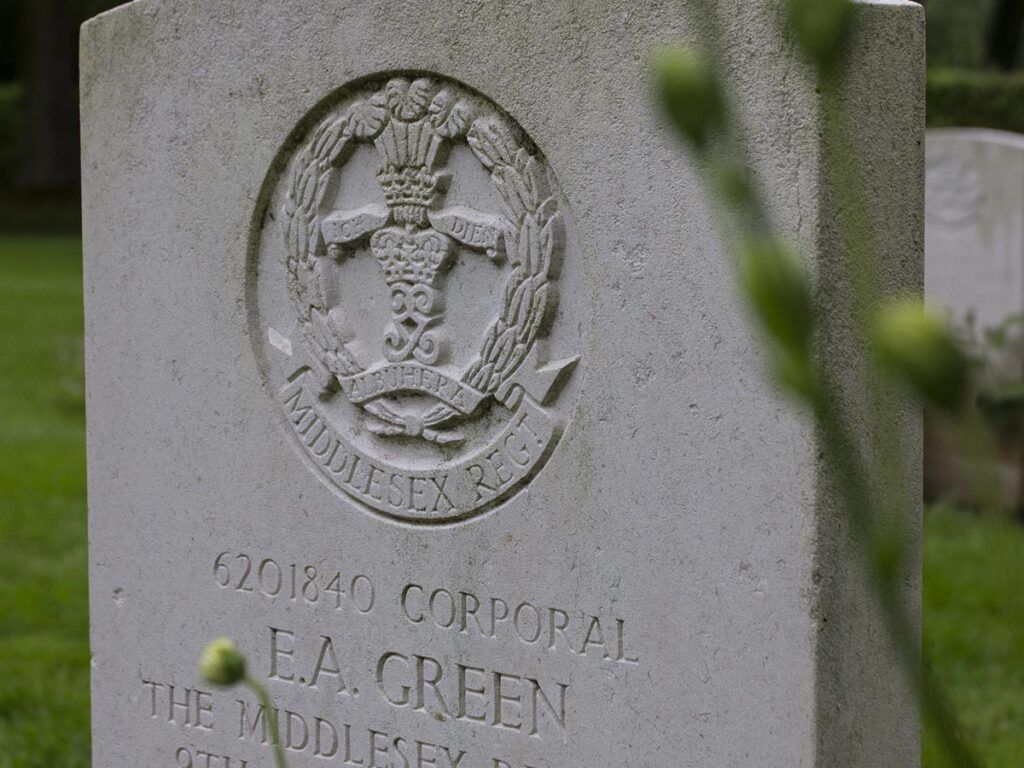
Royal Ulster Rifles
The Royal Ulster Rifles played a crucial role during the Normandy campaign, and many of their brave soldiers rest here. They were part of the 3rd Infantry Division that pushed inland after D-Day to secure strategic positions around Caen.
On June 7, 1944, just one day after the landings, the Rifles faced fierce resistance near Cambes-en-Plaine. The battle was particularly brutal as they fought to capture this small village from determined German defenders.
As you walk among the graves, you’ll notice clusters of Ulster Rifles insignia. Many fell during “Operation Charnwood” in early July 1944, when Allied forces finally broke through to capture Caen.
Tales of Bravery
Individual acts of heroism are commemorated throughout this cemetery. Some soldiers died rescuing wounded comrades under heavy fire, while others sacrificed themselves to ensure mission success.
Look for the grave of Lieutenant John Smith, who, despite being wounded, led his platoon to secure a critical crossroads. His leadership saved dozens of lives though he lost his own in the process.
Many headstones bear the simple inscription “Known unto God” – these unidentified soldiers remind us of the chaos of war and the anonymous sacrifices made by so many.
Visitors often leave small tokens – poppies, photos, or handwritten notes – at graves that have special meaning to them or their families.
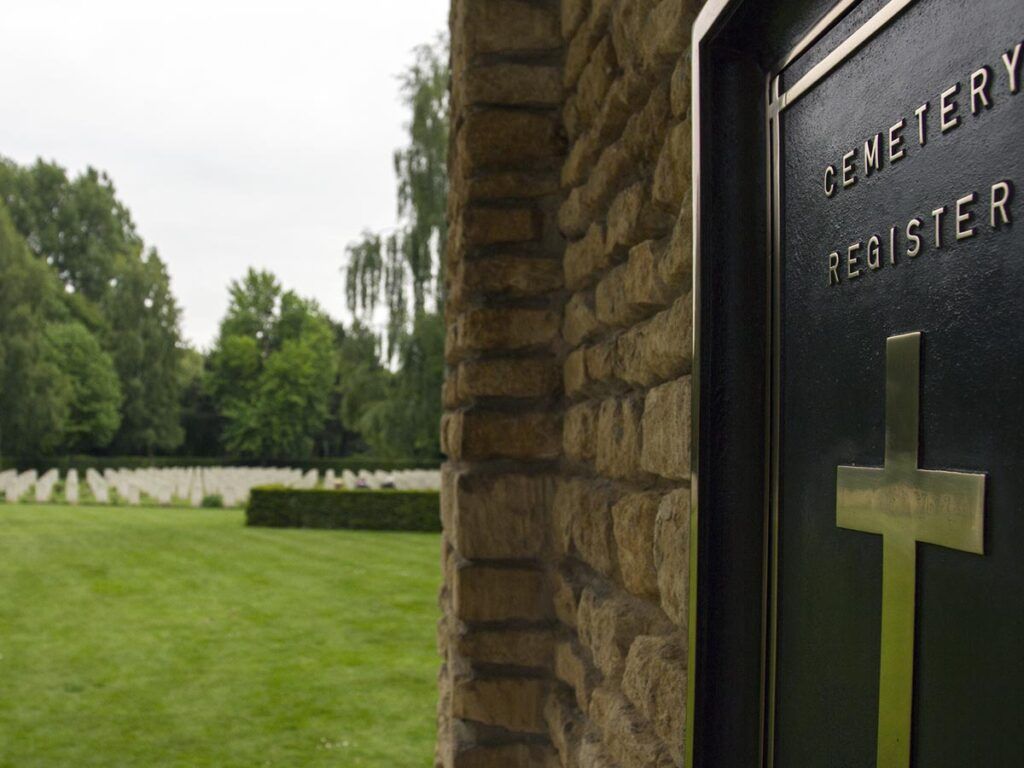
Canadian Forces and Dieppe
Canadian forces have a significant presence in this cemetery, many connected to both the Normandy campaign and earlier actions like the Dieppe Raid of 1942.
The RCAF (Royal Canadian Air Force) lost numerous airmen supporting ground operations around Caen. Their reconnaissance and bombing missions were essential to weakening German defenses before infantry assaults.
Several veterans of the disastrous Dieppe Raid who survived that bloodbath only to fall in Normandy rest here. Their experience at Dieppe provided vital lessons that helped shape the successful D-Day strategy.
You’ll notice Canadian maple leaf insignia on many headstones. Take a moment to appreciate how far these young men traveled from home to fight for freedom on French soil.
Visiting the Cemetery
Cambes-en-Plaine War Cemetery offers a peaceful place to reflect on the sacrifices made during the D-Day operations. This solemn site in Normandy’s Calvados region provides visitors with a powerful connection to the events that unfolded after the Allied forces landed on Gold Beach.
Planning Your Visit
The cemetery is open daily to visitors with no entrance fee. For the best experience, visit during morning hours when the light casts a gentle glow across the immaculately maintained grounds.
Spring and early summer provide pleasant weather and beautiful blooming flowers around the site. Remember that June can be busier due to D-Day anniversary commemorations.
To reach Cambes-en-Plaine, you’ll need a car as public transportation is limited. The cemetery is located in a quiet village about 5 kilometers north of Caen. GPS coordinates can be helpful as the site is tucked away from main tourist routes.
Consider allowing at least 1-2 hours for your visit to fully appreciate the cemetery and read the informational panels.
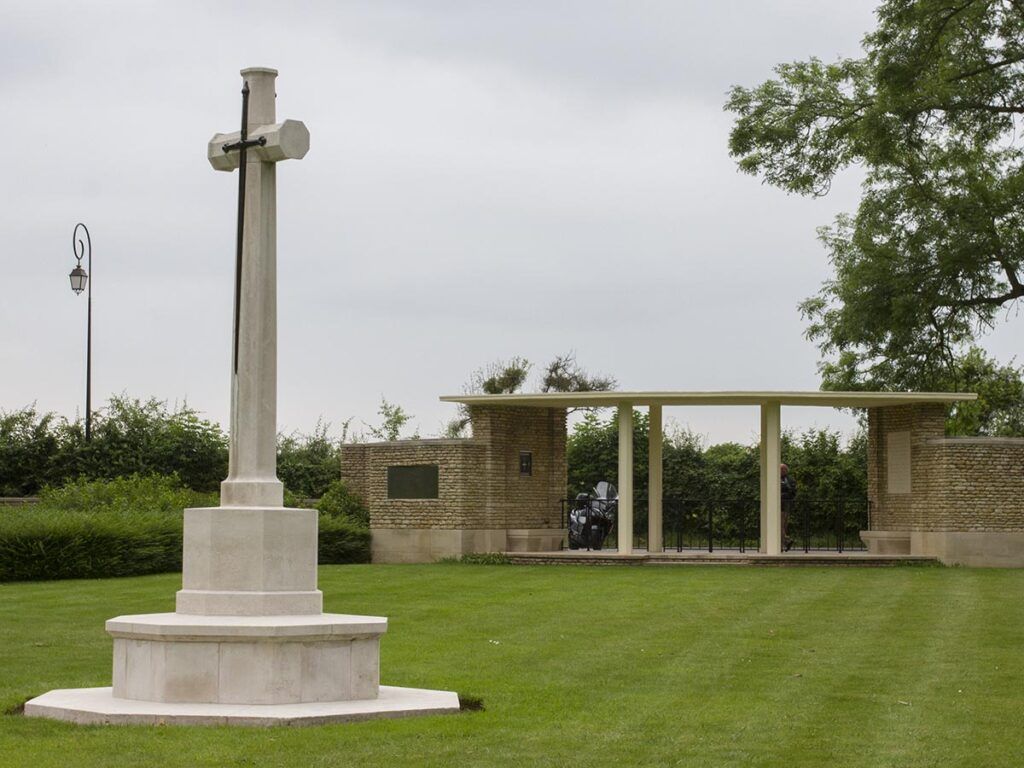
Nearby Accommodations
Caen offers the most convenient lodging options when visiting Cambes-en-Plaine. You’ll find everything from budget-friendly hotels to charming bed and breakfasts in the city center.
Recommended Hotels in Caen:
- Hôtel des Quatrans
- Best Western Plus Le Moderne
- Mercure Caen Centre Port de Plaisance
- Ibis Styles Caen Centre Gare
- Hôtel Restaurant Ivan Vautier
For a more authentic experience, consider staying in one of the smaller villages near Gold Beach. These accommodations often provide a more intimate connection to the region’s history.
Book well in advance if you’re planning to visit during summer months or D-Day anniversaries when availability becomes limited.
Guided Tours and Educational Programs
While the cemetery itself doesn’t offer regular guided tours, several tour companies in Normandy include Cambes-en-Plaine in their D-Day battlefield itineraries. These tours provide valuable historical context about the British troops who fought in this sector of Gold Beach.
Local historians sometimes conduct walking tours that can be arranged through the Caen tourist office. These experts share powerful stories about specific soldiers buried at the cemetery.
For educational groups, the Commonwealth War Graves Commission can provide materials to help students understand the significance of the site. Teachers should contact them in advance to arrange educational visits.
Recommended D-Day Tours from Paris:
- From Paris: Normandy D-Day Beaches Day Trip
- From Paris: 2-Day Normandy & Brittany Tour
- Normandy American D-Day Experience (From Bayeux Station)
Recommended D-Day Tours from Bayeux:
- From Bayeux: American D-Day Sites in Normandy Full-Day Tour
- From Bayeux: American D-Day Sites in Normandy Half-Day Tour
- From Bayeux: Half-Day Normandy WWII Sidecar Tour
- Full-Day US Battlefields of Normandy Tour from Bayeux
Recommended Private D-Day Tours:
- From Paris: Normandy D-Day Landing Beaches Full-Day Tour
- From Rouen: Normandy D-Day Beaches Private Full-Day Tour
- Private Tour: Rouen, Bayeux, and Falaise Day Trip from Bayeux
- Normandy WWII Private Half-day Sidecar Tour From Bayeux
Recommended Band of Brothers Tours:
Audio guides are not currently available on-site, so downloading a battlefield app beforehand can enhance your understanding of the cemetery’s historical significance.
Commemorative Events
The most significant commemorative event at Cambes-en-Plaine occurs annually on June 6th, marking the D-Day landings. Local officials, veterans’ organizations, and sometimes families of the fallen gather for a solemn ceremony.
British and Canadian representatives often attend these events, laying wreaths to honor their countrymen who fought to liberate this part of France during Operation Overlord.
Smaller remembrance ceremonies also take place on:
- Remembrance Sunday (November)
- Liberation of Cambes-en-Plaine (June 7)
If you’re visiting during these times, witnessing these moving tributes adds a profound dimension to your experience. You’re welcome to attend these public ceremonies, but maintain respectful behavior and dress appropriately.
Consider bringing flowers to place at a grave as a personal act of remembrance.
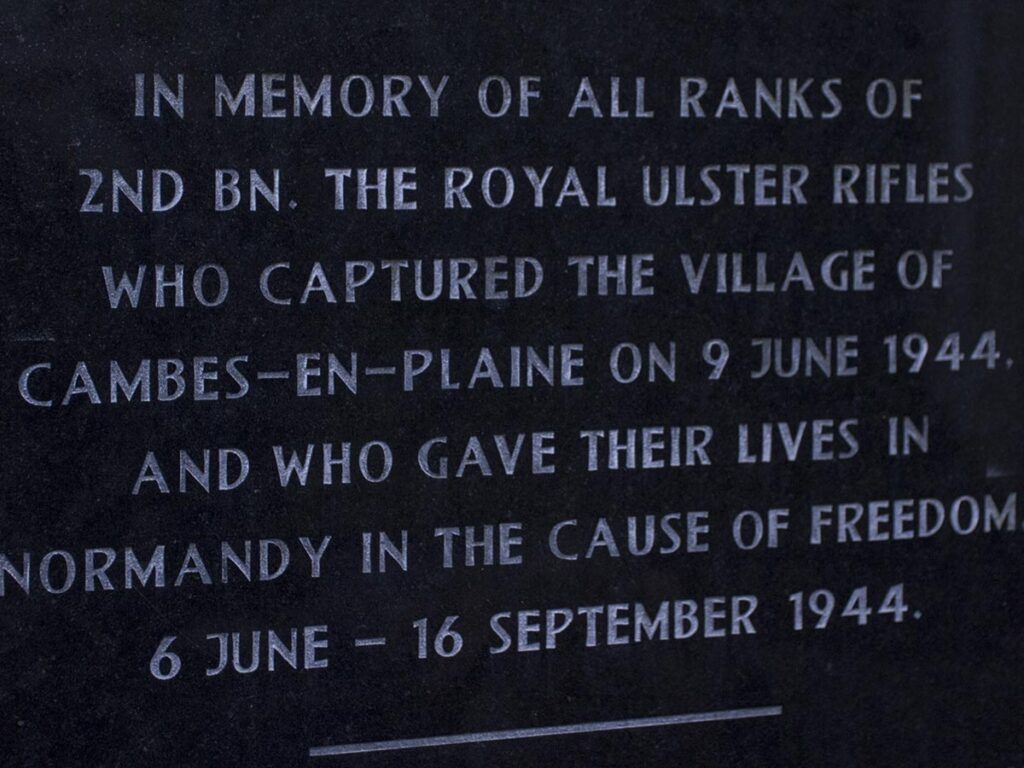
Surrounding Points of Interest
Visitors to Cambes-en-Plaine War Cemetery will find themselves at the heart of an area rich with historical significance and natural beauty. The region offers numerous related sites that provide context to the cemetery and enhance your understanding of World War II in Normandy.
Normandy Battlefields
The countryside surrounding Cambes-en-Plaine contains numerous important battlefield sites from the 1944 D-Day landings and subsequent Battle of Normandy. Just a short drive away, you’ll find Sword Beach where British forces landed on June 6, 1944.
The nearby Hillman Strongpoint in Colleville-Montgomery showcases German defensive positions with preserved bunkers and trenches. You can walk the same ground where Allied soldiers fought to push inland from the beaches.
The coastal defences at Ouistreham, including the famous Grand Bunker, offer insight into the Atlantic Wall fortifications that Allied forces had to overcome. Many of these sites feature informative panels explaining troop movements and the strategic importance of various defensive positions.
Nearby Military Museums and Memorials
The Memorial de Caen, just 4.3 km away, is one of France’s premier WWII museums. Its comprehensive exhibits examine the causes, conduct and consequences of the conflict. Plan to spend at least half a day exploring its extensive collections.
D-Day Academy in Rots (7.4 km) offers specialized tours and displays of military vehicles and equipment. Their knowledgeable guides provide detailed explanations of battle tactics.
The Radar Museum at Douvres-la-Délivrande (5.7 km) preserves a German radar station that was vital to their defensive network. The British Legion maintains a presence at several sites, helping to preserve the memory of fallen soldiers.
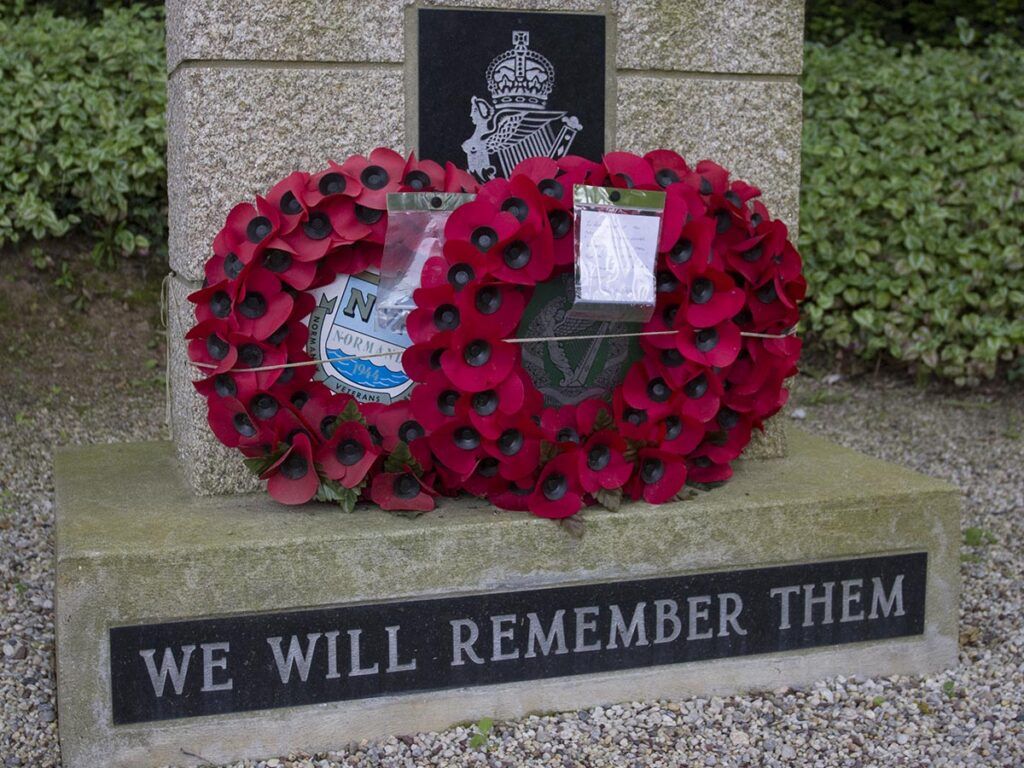
Exploring the Calvados Region
Beyond war history, the Calvados region offers charming villages and natural beauty. The picturesque town of Creully, just 13 km away, features a historic castle and lovely cafés.
Caen, only 6 km from Cambes-en-Plaine, combines medieval history with modern amenities. William the Conqueror’s castle and the stunning Abbaye aux Hommes shouldn’t be missed during your visit.
The famous Normandy apple orchards surround you in this region, with many cider and calvados producers offering tours and tastings. These provide a welcome contrast to the somber war sites.
The coastal town of Étretat, though further afield, rewards visitors with dramatic sea cliffs including the famous natural arches: Porte d’Aval, Porte d’Amont, and Manneporte.
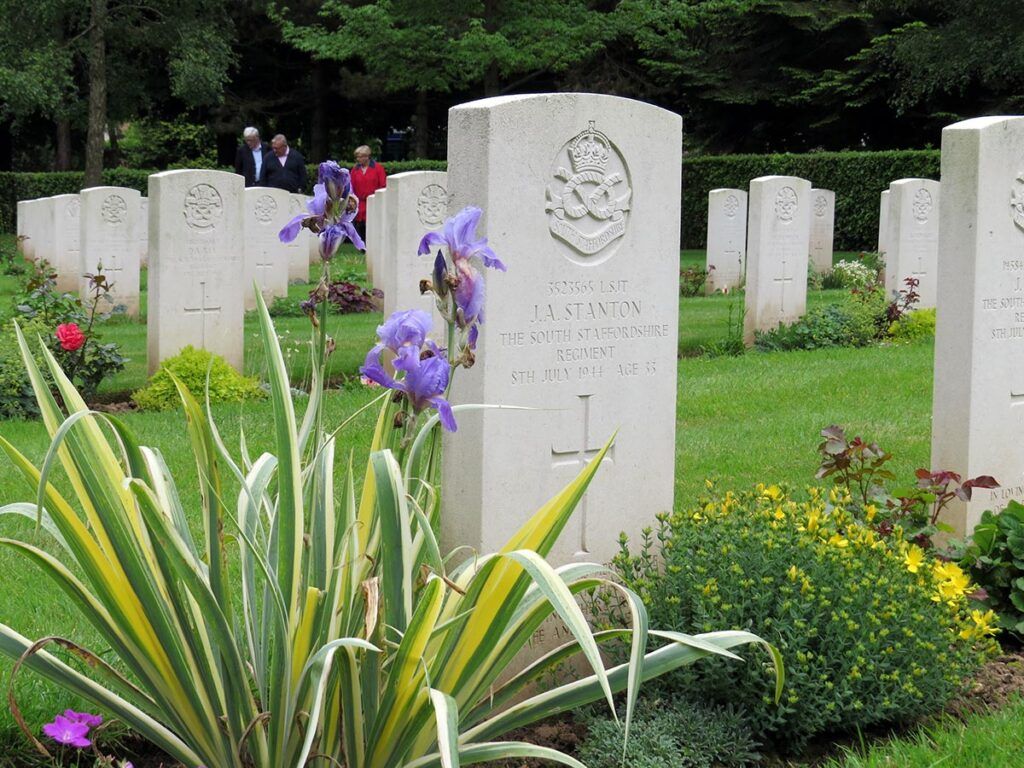
Preservation Efforts
The serene grounds of Cambes-en-Plaine War Cemetery stand as a testament to ongoing dedication to honor fallen soldiers. Meticulous care ensures this memorial remains a dignified resting place for Commonwealth soldiers who made the ultimate sacrifice during the Battle of Normandy.
Maintaining the Cemetery
The Commonwealth War Graves Commission (CWGC) maintains this peaceful cemetery with remarkable attention to detail. You’ll notice the immaculately trimmed lawns and carefully tended flowerbeds that frame the uniform white headstones. Gardeners work year-round to preserve the dignified atmosphere.
Every headstone undergoes regular cleaning and restoration to combat weathering effects. When you visit, you might see staff gently washing the Portland stone markers or replanting seasonal flowers.
The CWGC follows strict preservation guidelines established after WWII. These ensure that each Commonwealth soldier receives equal commemoration, regardless of rank or background.
Role of Organizations
The CWGC serves as the primary caretaker, but local French organizations also contribute significantly to preservation efforts. Community groups often participate in ceremonies and help with supplementary maintenance tasks.
School programs bring young students to learn about the cemetery’s history. These educational initiatives help ensure remembrance continues across generations.
Volunteer groups from Britain, Canada, and other Commonwealth nations organize regular visits. They assist with special commemorative events, particularly around D-Day anniversaries in June.
French-British friendship associations arrange memorial services throughout the year. Their involvement highlights the strong bonds formed through shared sacrifice during the liberation of Normandy.

